Huong Pagoda Festival, Tran Temple Seal Opening Ceremony, Yen Tu Spring Festival, Hung Temple Festival... are big and unique festivals that tourists should not miss when traveling to the North in the spring.
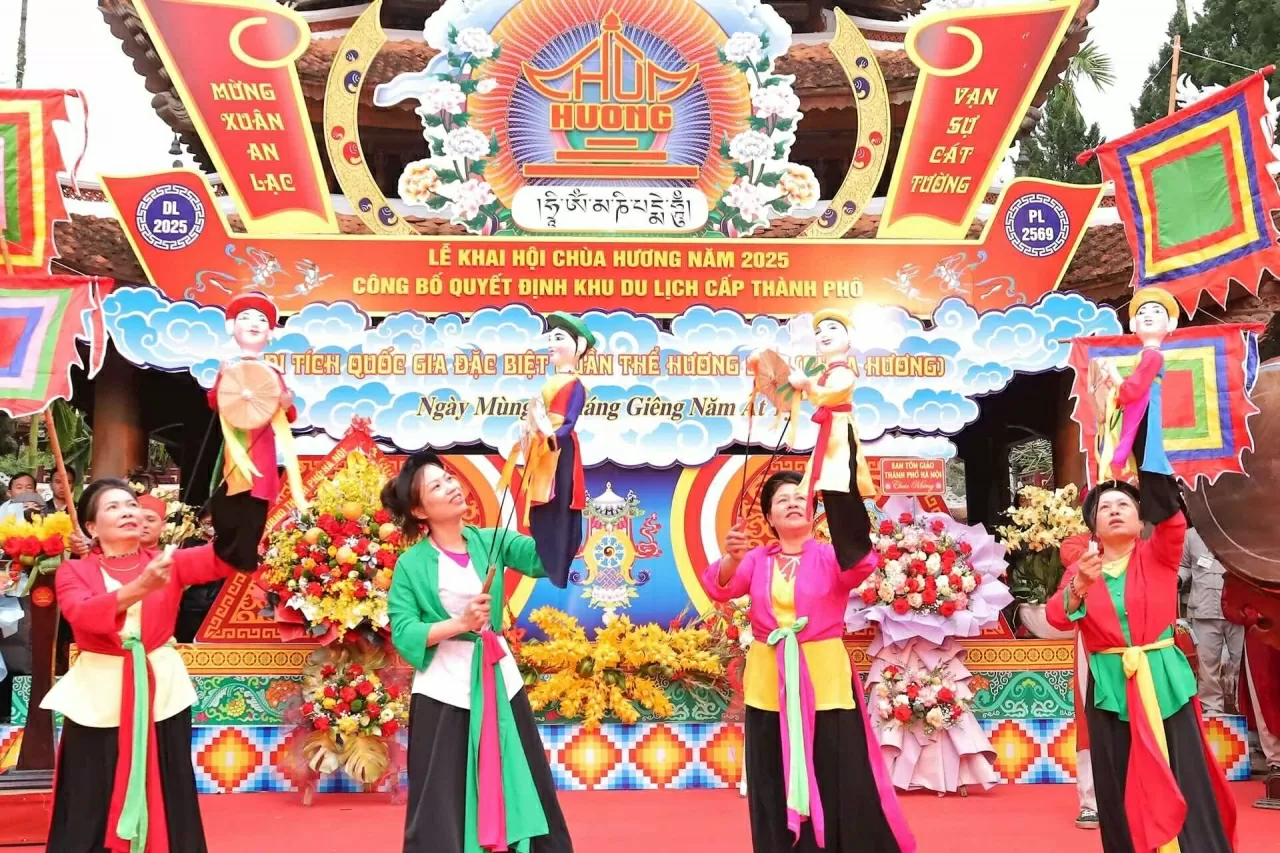 |
| Spring travel is a long-standing tradition of Vietnamese people, going to pagodas and offering incense at the beginning of the year to pray for a peaceful and lucky new year. In the photo: The opening ceremony of Huong Pagoda Festival 2025. (Photo: Kim Nhuệ) |
Spring travel is a traditional custom of Vietnamese people, not only a time to rest but also an opportunity to connect with the roots and cultural values of the nation.
Every time Tet comes, Vietnamese people are excited about the custom of going on a spring outing, an indispensable cultural beauty on the first day of the new year. This is not only an opportunity to enjoy the spring scenery, but also a time to wish for luck and happiness in the new year, as an opportunity to contemplate and turn towards spiritual values.
Traditional festivals in Vietnam are held throughout the regions and are usually most vibrant in the spring, after the Lunar New Year. Each festival has its own unique features and values, helping generations understand the merits of their ancestors, remember their forefathers, respect and show gratitude to their ancestors, and be more proud and preserve the traditional cultural beauty of the nation.
Many major festivals have become cultural tourism brands, attracting hundreds of thousands of visitors each year. If you have the opportunity to visit the North during Spring, you should not miss these 10 unique Spring festivals.
Perfume Pagoda Festival
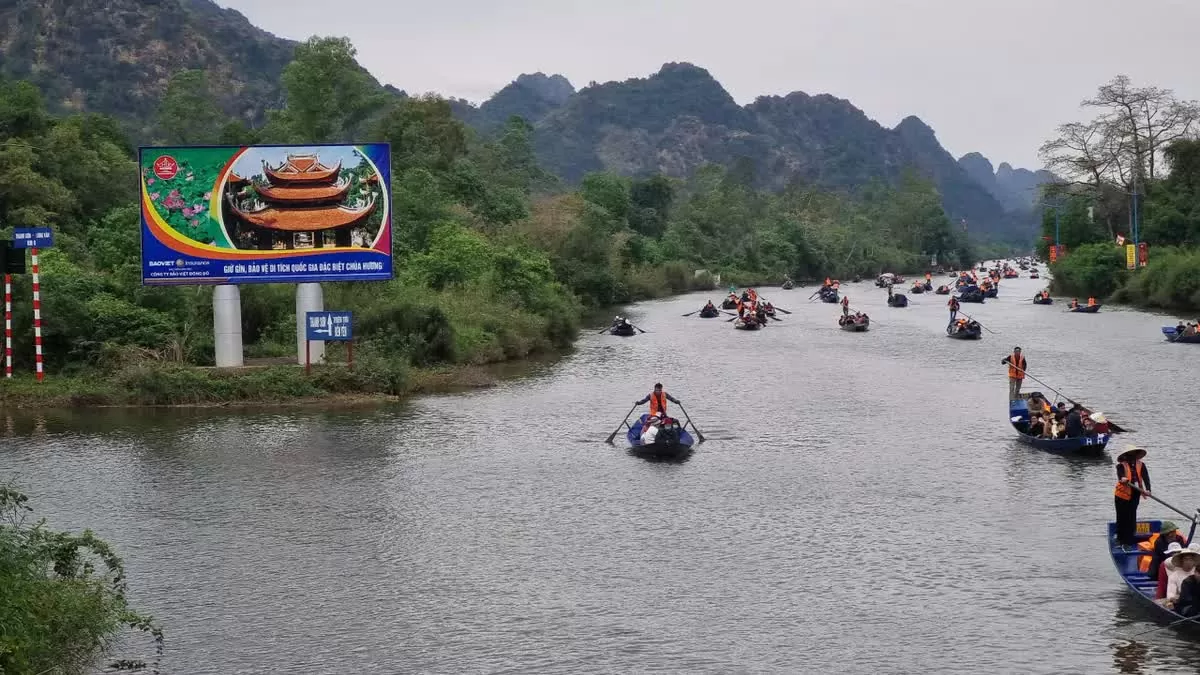 |
| Huong Pagoda Festival is a large festival in terms of the number of Buddhists participating in pilgrimage. (Source: VTV) |
Huong Pagoda, also known as Huong Son Pagoda, is a scenic complex located in Huong Son commune, My Duc district, Hanoi.
The Perfume Pagoda complex is known as “The most beautiful landscape in the South” by tourists from all over the world and is one of the most beautiful landscapes in Vietnam. This place was once considered a symbol of Buddhist beliefs in the capital Hanoi in particular and the North in general.
The Perfume Pagoda Festival is a large festival in terms of the number of Buddhists participating in pilgrimages. The festival is held from January 6 to the end of March of the lunar calendar, often attracting a large number of tourists because this is the time when the scenery and weather are most beautiful for tourists to visit.
The festival takes place with many unique artistic activities such as Cheo singing, Van singing, and also sports competitions such as mountain climbing, boat racing, etc. In the past, people held the Huong Pagoda festival with the meaning of opening mountains and forests. Nowadays, the Huong Pagoda festival also has the meaning of opening temples and pagodas for people to come here to pray for wealth and peace for their families.
Yen Tu Spring Festival
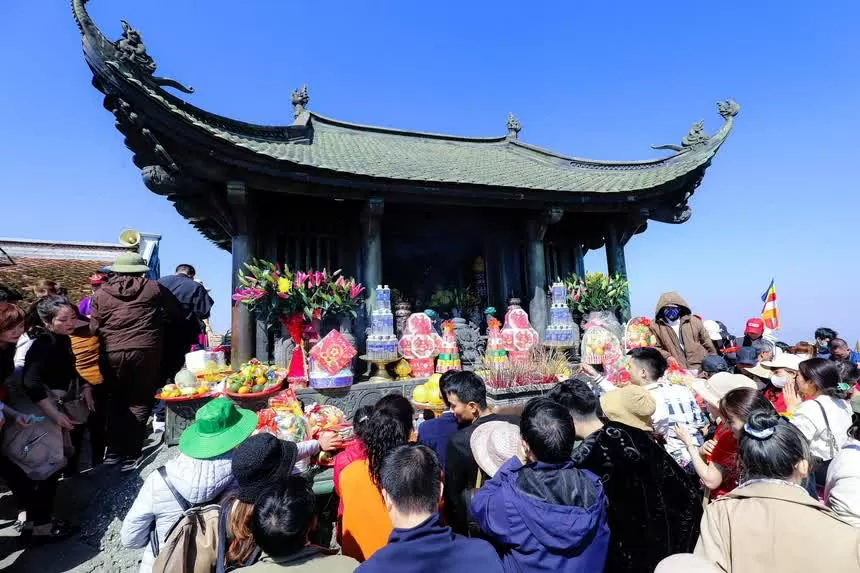 |
| Dong Pagoda is named after the sacred Yen Tu mountain. (Photo: Huu Hung) |
Yen Tu Spring Festival (Quang Ninh) usually starts on the 9th day of the first lunar month and lasts for the entire 3 months of spring.
After the solemn ceremony of the festival held at the foot of Yen Tu mountain, there is a pilgrimage of tens of thousands of people to Dong pagoda on the top of the mountain. Visitors come to Yen Tu pagoda festival to separate themselves from the mundane world, making a pilgrimage to the land of Buddha amidst majestic nature.
In 1299, King Tran Nhan Tong established the Truc Lam Zen sect with a system of theories and actions that linked religion with life. He is considered the first patriarch of the Truc Lam Yen Tu Buddhist sect. From then on, Yen Tu became the ideological capital of the Truc Lam Yen Tu Buddhist sect, marking the development of philosophy and ideology of the Vietnamese people in the 12th, 13th, and 14th centuries.
Many Buddhist spiritual structures and hundreds of hermitages, tomb towers, steles and statues have been built on the sacred peak of Yen Tu. This massive architectural complex combined with the charming scenery has created the Yen Tu Historical Relic and Scenic Area of national significance.
Until today, historical and cultural researchers still have not come to a final conclusion about the exact birth time of Yen Tu Spring Festival, only estimating that it may have existed since the 17th-18th centuries.
The road to Yen Tu peak is a test of faith, verifying sincerity to Buddha. Reaching Dong Pagoda, Buddhist followers feel satisfied as if they have reached the source of Buddha's realm.
Dong Da Mound Festival
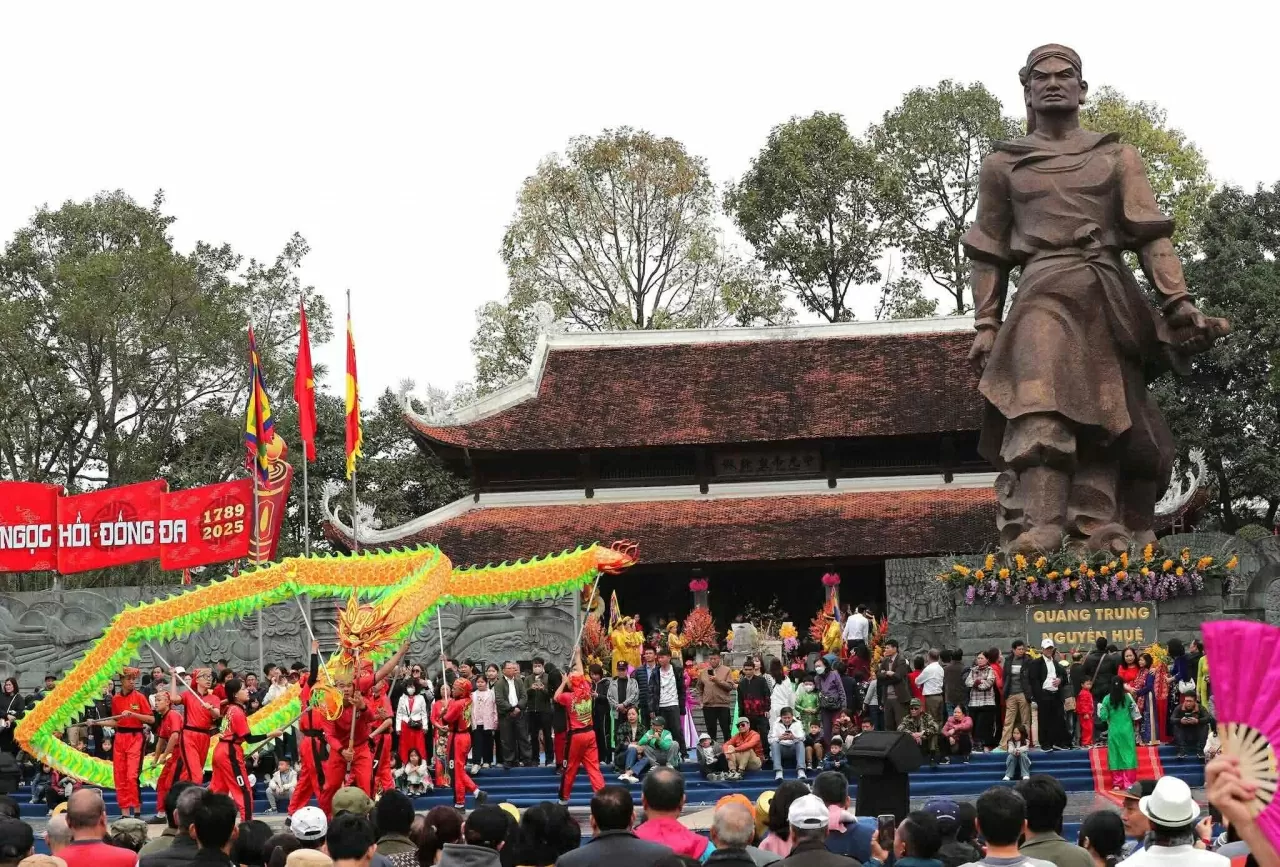 |
| The Dong Da Mound Festival commemorates the glorious achievements of King Quang Trung and the Tay Son generals who fought against foreign invaders to protect national independence. (Source: Lao Dong) |
Dong Da Mound is a historical site located on Tay Son Street, Quang Trung Ward, Dong Da District, Hanoi. This place is associated with the victory of King Quang Trung over the Qing army in 1789 in the heroic battle of Ngoc Hoi - Dong Da.
Dong Da Mound Festival (Hanoi) takes place on the 5th day of the first lunar month every year to commemorate the glorious achievements of King Quang Trung.
During the festival, there are many fun games, clearly demonstrating the martial spirit, of which the Thang Long Fire Dragon procession is the most unique.
Dong Quang Pagoda near Dong Da mound is also the place where prayers and incense offerings are held to commemorate the contributions of heroes and martyrs for the people and the country.
With its special and typical value, on December 24, 2018, the Prime Minister issued a Decision to rank Dong Da Mound Historical Relic as a special national relic.
Co Loa Festival
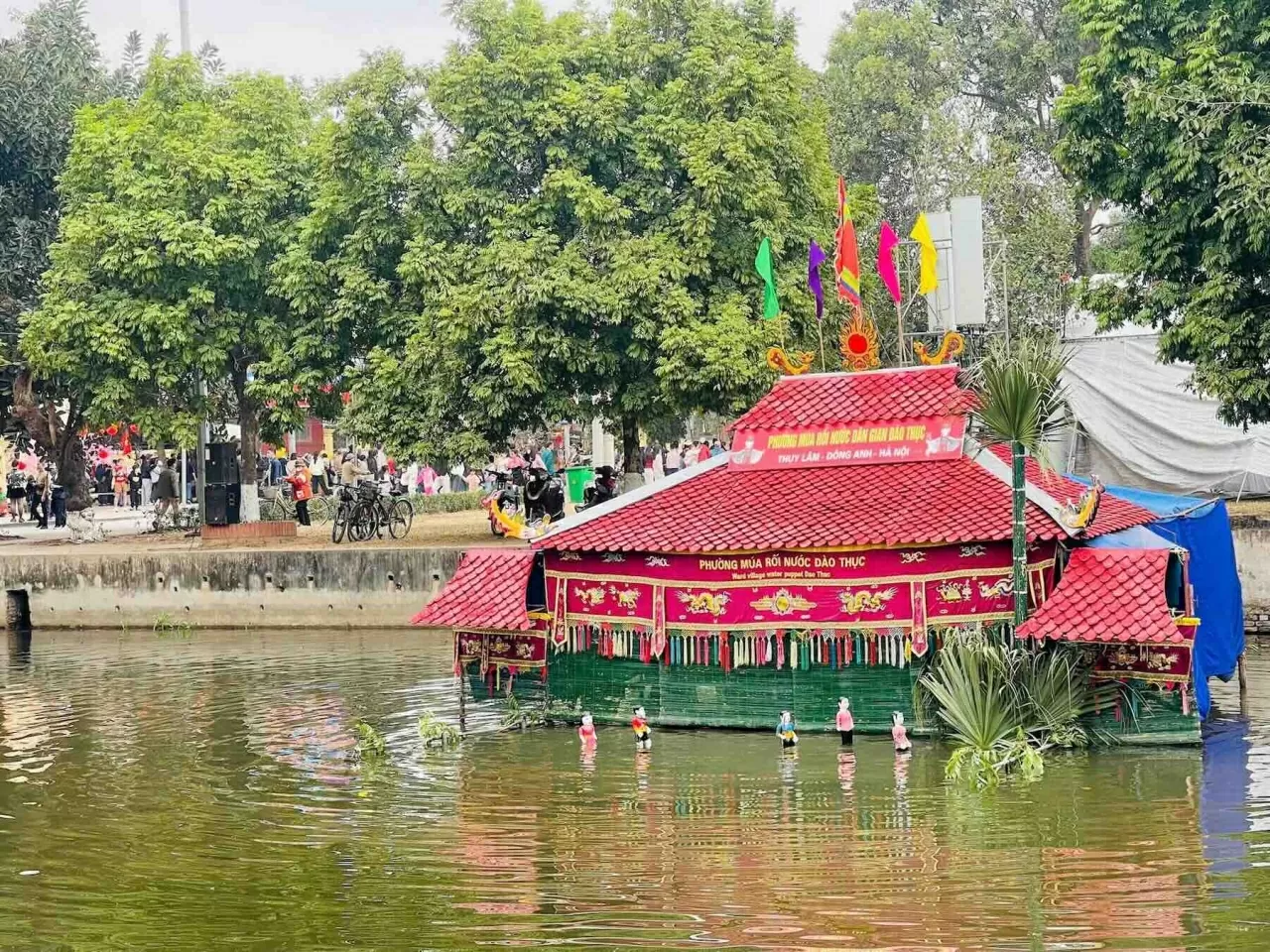 |
| Dao Thuc water puppet performance at Co Loa Festival. (Photo: D.Anh) |
Co Loa Festival takes place from the 6th to the 16th of the first lunar month at An Duong Vuong Temple in Co Loa Commune, Dong Anh District, Hanoi.
On the morning of the 6th of Tet, the festival opens with a procession of Literature with 5 flags of the five elements, the octet, and the funeral oration placed in the Long Dinh palanquin, with umbrellas and canopies.
After the Van procession is the sacrificial ceremony that takes place past noon. Next is the procession of the gods of the 12 hamlets. In addition, there are many different games in the festival: swing playing, rice cooking competition, Tru singing, Cheo singing...
The Co Loa Festival lasts until January 16, when a ceremony to thank heaven and earth is held, ending the festival.
Co Loa Festival is to commemorate and honor Thuc Phan An Duong Vuong, who founded the Au Lac nation and built Co Loa citadel.
Doi Son Tich Dien Festival
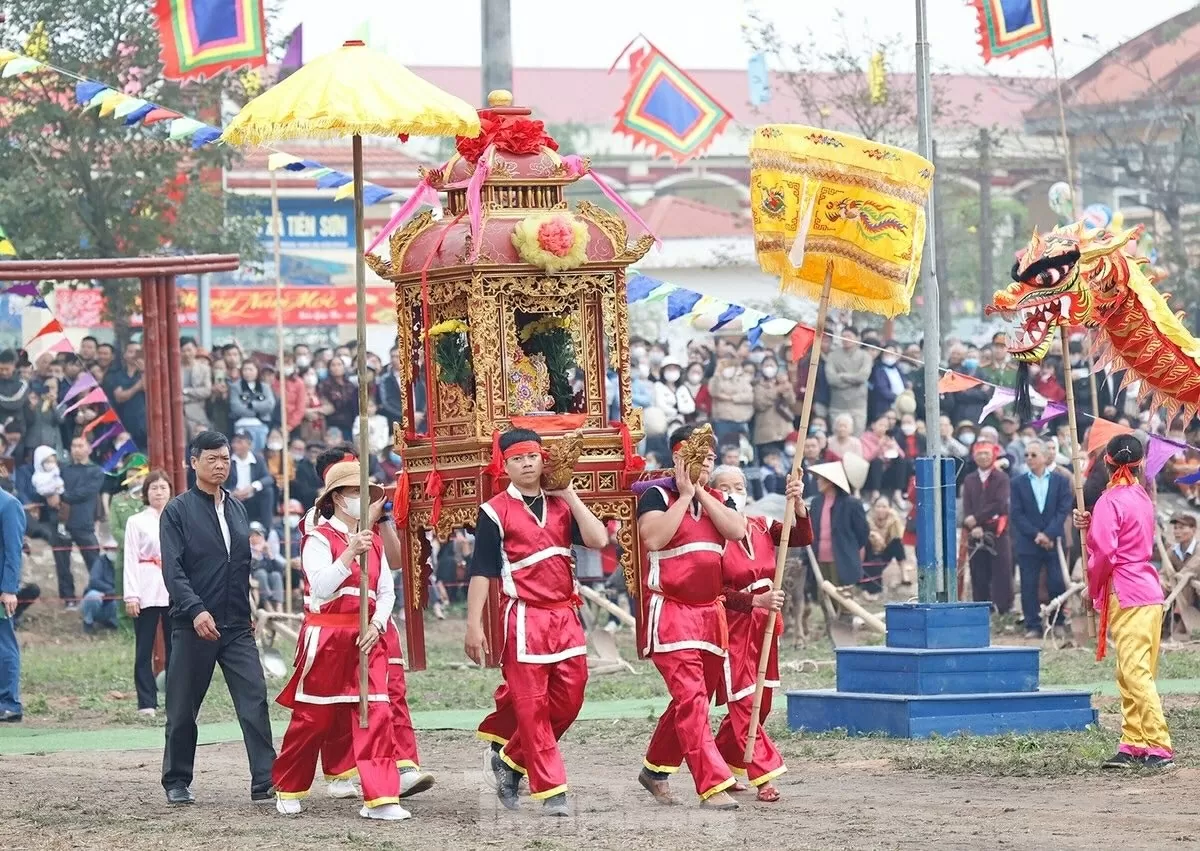 |
| Tich Dien Doi Son Festival prays for favorable weather and good crops. (Source: Ethnicity & Development) |
Every year, people in Doi Son commune, Duy Tien district, Ha Nam province eagerly await the Doi Son Tich Dien Festival. This is a traditional festival to plow the fields and pray for a year of favorable weather and good crops.
The Doi Son Tich Dien Festival takes place from the 5th to the 7th of January, with the meaning of promoting agriculture.
This unique festival dates back to the 10th century in the homeland of King Le Dai Hanh. After many years of being lost, the Tich Dien festival was restored in 2009 on the 7th day of the first lunar month.
Vieng market festival
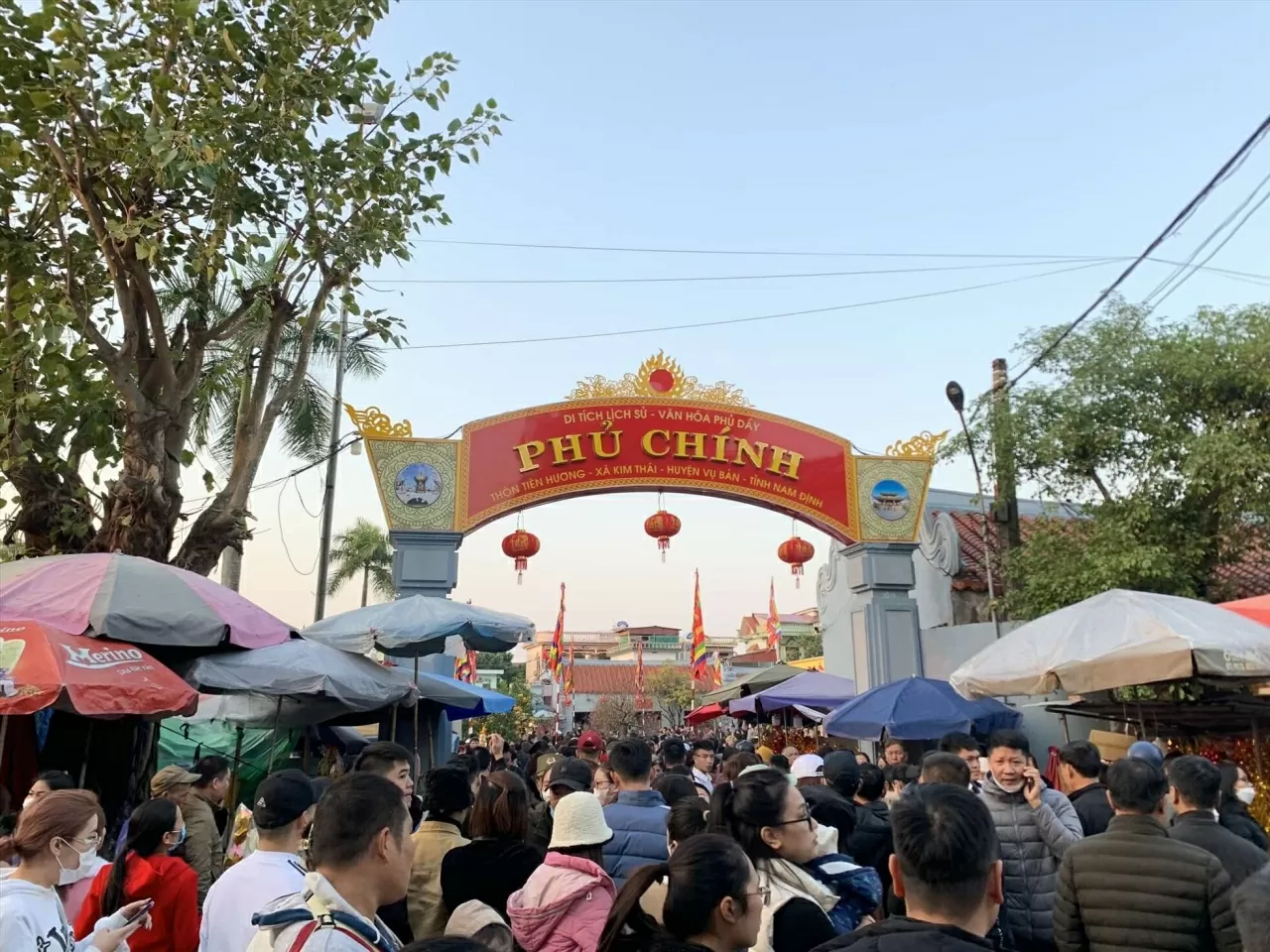 |
| Vieng - Phu Day Market is held only once a year from the night of January 7 to January 8 every year, attracting a large number of tourists from all over the world. (Photo: Tue Nhi) |
Come to Vieng Market to see the only market of the year that opens at midnight, which has become a unique cultural feature in festivals in the North.
According to records, from the afternoon of January 7, tourists flocked to the Vieng fair in Kim Thai commune, Vu Ban district (Nam Dinh). This is a market that only takes place once a year, known as the lucky shopping market.
In addition to Vieng market, tourists can also visit Phu Day festival on January 8. Phu Day is one of the temples worshiping Lady Lieu Hanh, one of the "four immortals" of Vietnam.
Giong Festival at Soc Temple
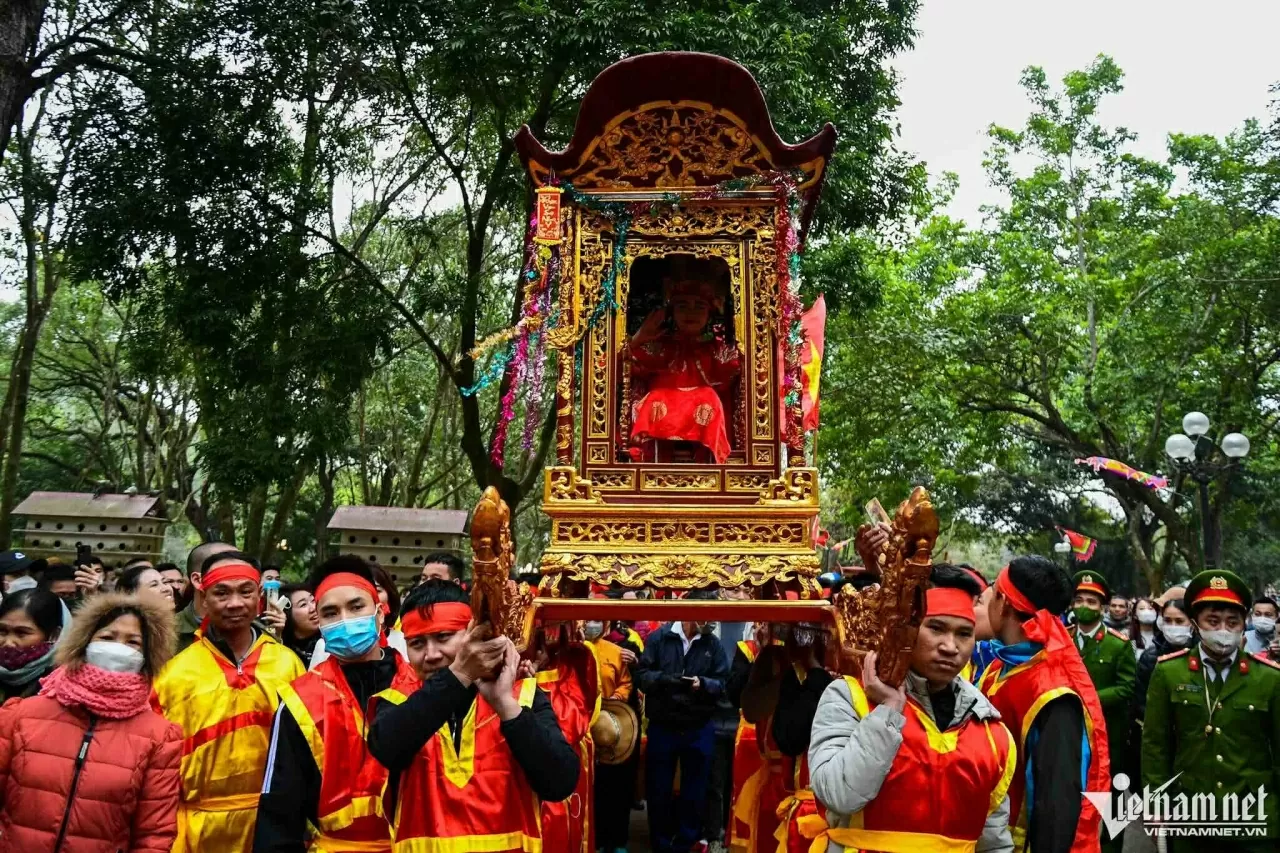 |
| The ritual of welcoming the female general at the Gióng Festival in Sóc Temple. (Source: Vietnamnet) |
The Gióng Festival at Sóc Temple (in Vệ Linh Village, Phù Linh Commune, Sóc Sơn District) is one of the largest and most important festivals in Hanoi, recognized by UNESCO as an intangible cultural heritage of humanity. Not only known as a place to worship Phù Đổng Thiên Vương, the Gióng Festival at Sóc Temple is also famous for many traditional rituals that are still preserved today.
Opening on January 6 every year, the Gióng Festival at Sóc Temple has the participation of many neighboring villages in the region and is carefully prepared by the people in advance.
The festival takes place over 3 days with full traditional rituals such as: opening ceremony, procession, incense offering ceremony, bamboo flower offering to Thuong Temple, where Saint Giong is worshiped.
In addition to participating in the unique cultural activities at the Gióng Festival, this is also an opportunity for tourists to visit and learn about the Soc Temple relic complex with 6 structures: Ha Temple (Trinh Temple), Dai Bi Pagoda, Mau Temple, Thuong Temple (Soc Temple), Saint Gióng Monument and Stele House. In particular, Thuong Temple is the place to worship Saint Gióng and organize festivals, with full traditional rituals such as: Bathing ceremony, procession ceremony, incense offering ceremony, elephant and horse transformation ceremony...
Tran Temple Seal Opening Festival
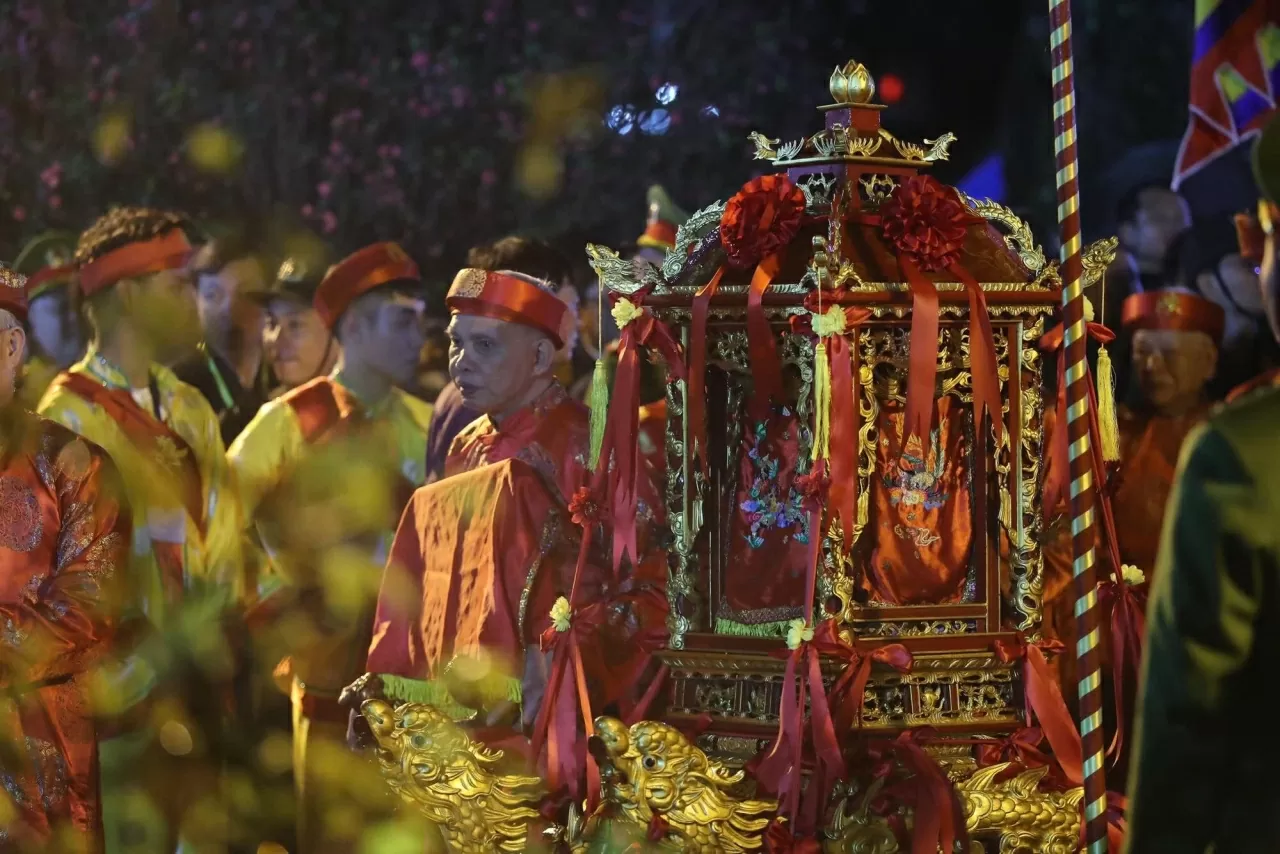 |
| The Tran Temple Opening Ceremony Festival in Nam Dinh is held in early spring every year to preserve and promote cultural values. (Photo: Nhat Nam/VGP) |
The annual Tran Temple Seal Opening Festival takes place from January 11 to 16; in which the main Seal Opening Festival takes place on the night of the 14th (starting from the hour of Ty) is an ancient custom at the Tran Dynasty's Tien Mieu (formerly Thien Truong Palace) with the great humanistic meaning of praying for "national peace and people's security," world peace and prosperity; all families enjoy the blessings of the Tran Temple's "Infinite blessings" seal.
This is one of the most famous spring festivals in Vietnam. Attending the Tran Temple Seal Opening Festival at the Tran Temple-Pho Minh Pagoda National Historical-Cultural Relic Site, Loc Vuong Ward (Nam Dinh) is an opportunity for generations of people to express their respect and gratitude to the Tran Dynasty - the most prosperous dynasty in the feudal history of Vietnam and to Saint Tran - Duke, Commander-in-Chief Hung Dao Dai Vuong Tran Quoc Tuan - who had great contributions to the glorious victories of the Tran Dynasty in defending the country, and was revered as a Saint by the people; arousing pride in the brilliant Dong A spirit of the Dai Viet army and people who defeated the invading Yuan-Mongol army three times.
Coming to the Tran Temple Seal Opening Festival in early Spring, people not only satisfy their wishes for luck and blessings but also admire the landscape and traditional heritage values of the Tran Temple - Pho Minh Pagoda - Cultural Historical Relic Site. From architectural works representing the art and architectural style of the Tran Dynasty to documents and artifacts preserved for hundreds of years... they partly show the glorious and heroic history of the Tran Dynasty's "martial arts and civil governance".
Lim Festival
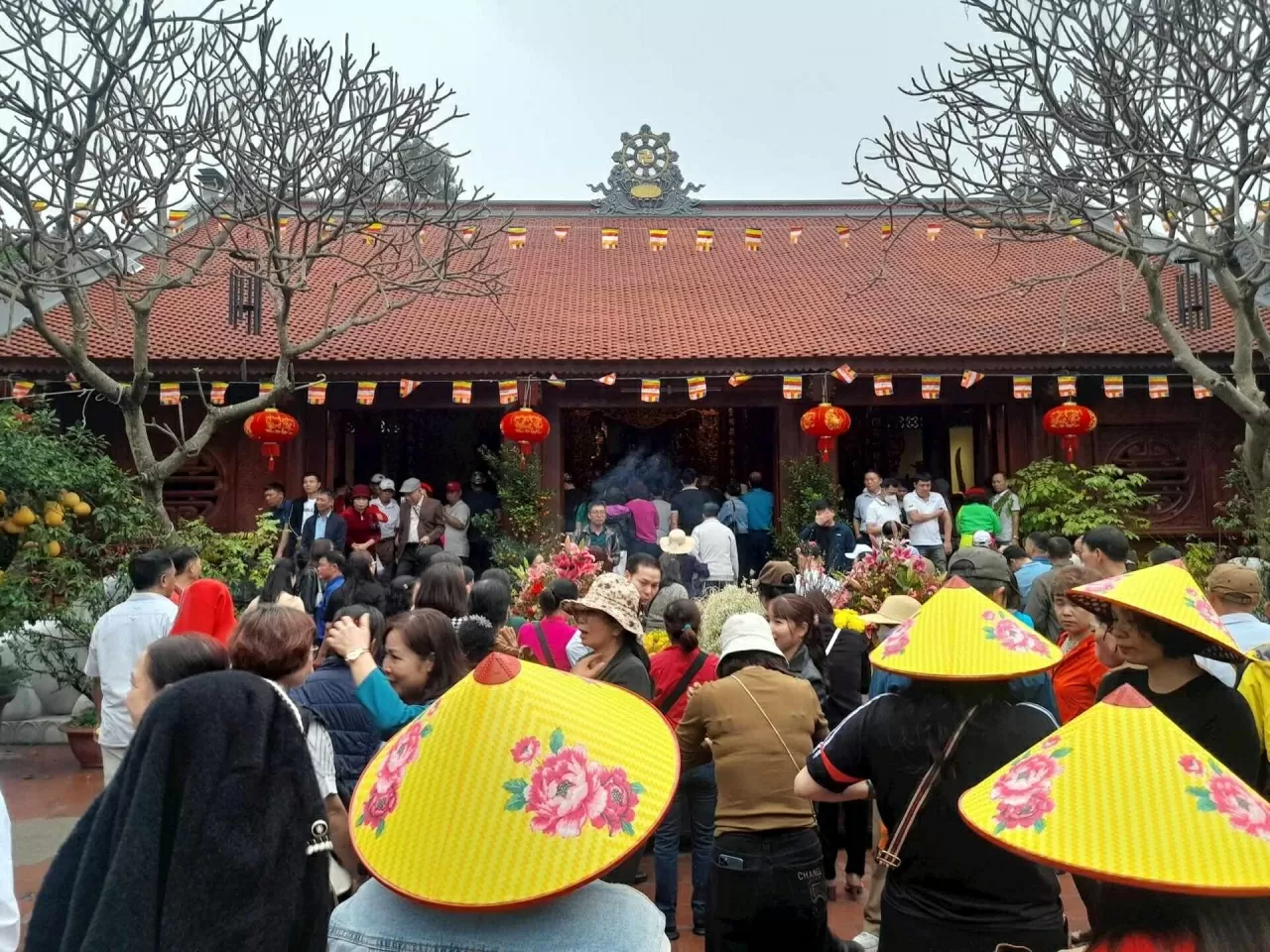 |
| Tourists from all over the world worship at Lim Pagoda. (Photo: Hong An) |
Lim Festival is a big traditional festival of Bac Ninh province. Lim Festival takes place at Lim hill (Tien Du district, Bac Ninh province) from January 12-13, to commemorate the two founders of Quan Ho folk songs, Vua Ba and Mr. Hieu Trung Hau.
The festival is held very joyfully with bustling processions and folk games, along with Quan Ho folk singing venues, a cultural specialty of Kinh Bac land.
Pilgrims attending Lim festival can also enjoy many other traditional local cultural activities, or participate in games such as flying trapeze, cockfighting, bird fighting, tom diem, wrestling, etc.
Hung Temple Festival
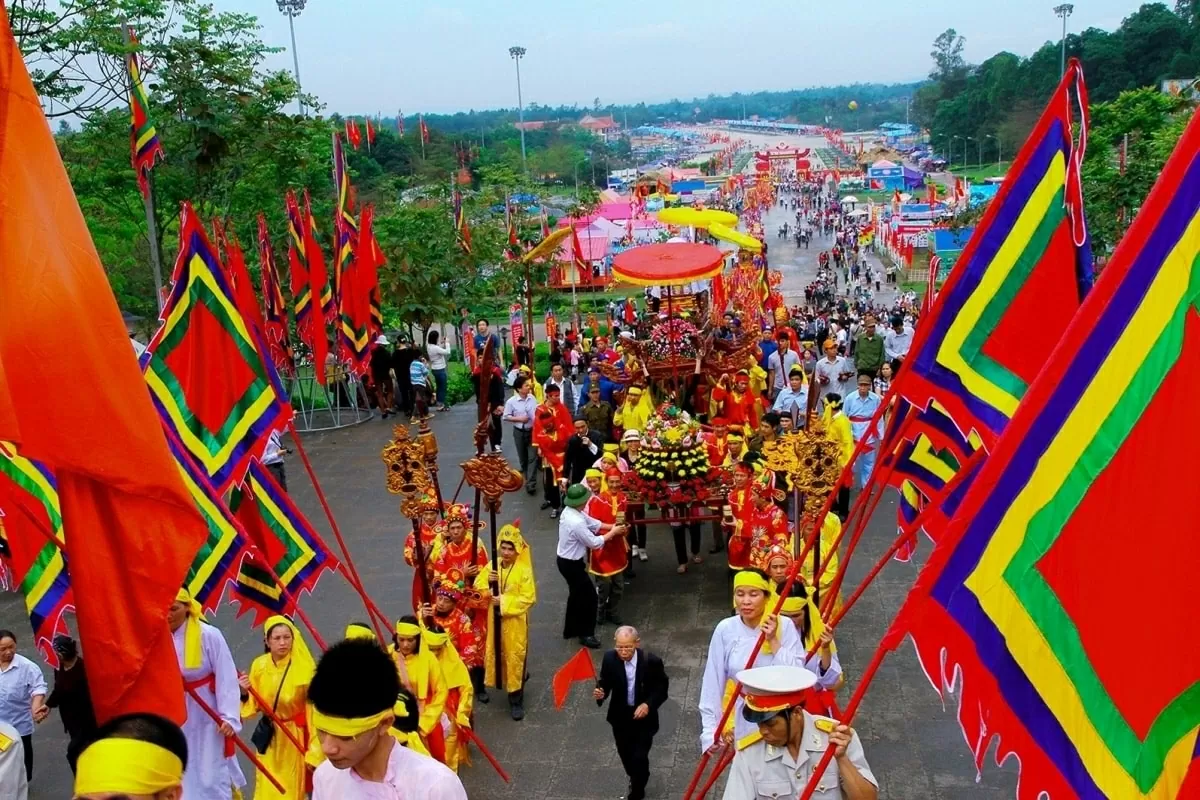 |
| Hung Kings' Commemoration Day - Hung Temple Festival is an occasion to educate about traditions, to arouse the morality of "When drinking water, remember its source" and the strength of national unity. (Source: Hanoi Moi) |
Hung Temple Festival, also known as Hung Kings' Death Anniversary, is one of the biggest festivals of the year, to commemorate and express gratitude for the founding of the country by the Hung Kings, the first kings of the nation.
"No matter where you go
Remember the Ancestor's Death Anniversary on the 10th of March"
The folk song full of love has entered the hearts of every Vietnamese person from generation to generation. For thousands of years, Hung Temple - the origin of the nation and the country - has always been a symbol of respect, solemnity, gathering and attachment to the Vietnamese people.
The Hung Kings Commemoration Day takes place on the 10th day of the third lunar month at Hung Temple, Viet Tri, Phu Tho. Before that, the festival took place with many folk cultural activities and ended on the 10th day of the third lunar month with a palanquin procession and incense offering ceremony at the Upper Temple.
In 2007, the National Assembly approved the amendment and supplement to Article 73 of the Labor Law allowing employees to take time off with full pay on the Hung Kings' Commemoration Day (10th of the 3rd lunar month). Since then, the 10th of the 3rd lunar month has become a major holiday - a national holiday with national cultural significance.
The annual Hung Kings' death anniversary is a common festival for all people, a day when all hearts, no matter where they live and work, all over the world, still beat as one, all eyes look in the same direction. On this day, people across the country also have the opportunity to participate in cultural activities to express their respect and gratitude to the Hung Kings who built the country and our ancestors who protected the country for the people.
In 2012, UNESCO officially recognized the "Hung King Worship in Phu Tho" - a symbol of the spirit of great solidarity and the traditional morality of "When drinking water, remember its source" of the Vietnamese people as a representative Intangible Cultural Heritage of Humanity.
Source: https://baoquocte.vn/top-10-le-hoi-van-hoa-lon-o-mien-bac-du-khach-khong-nen-bo-lo-303242.html


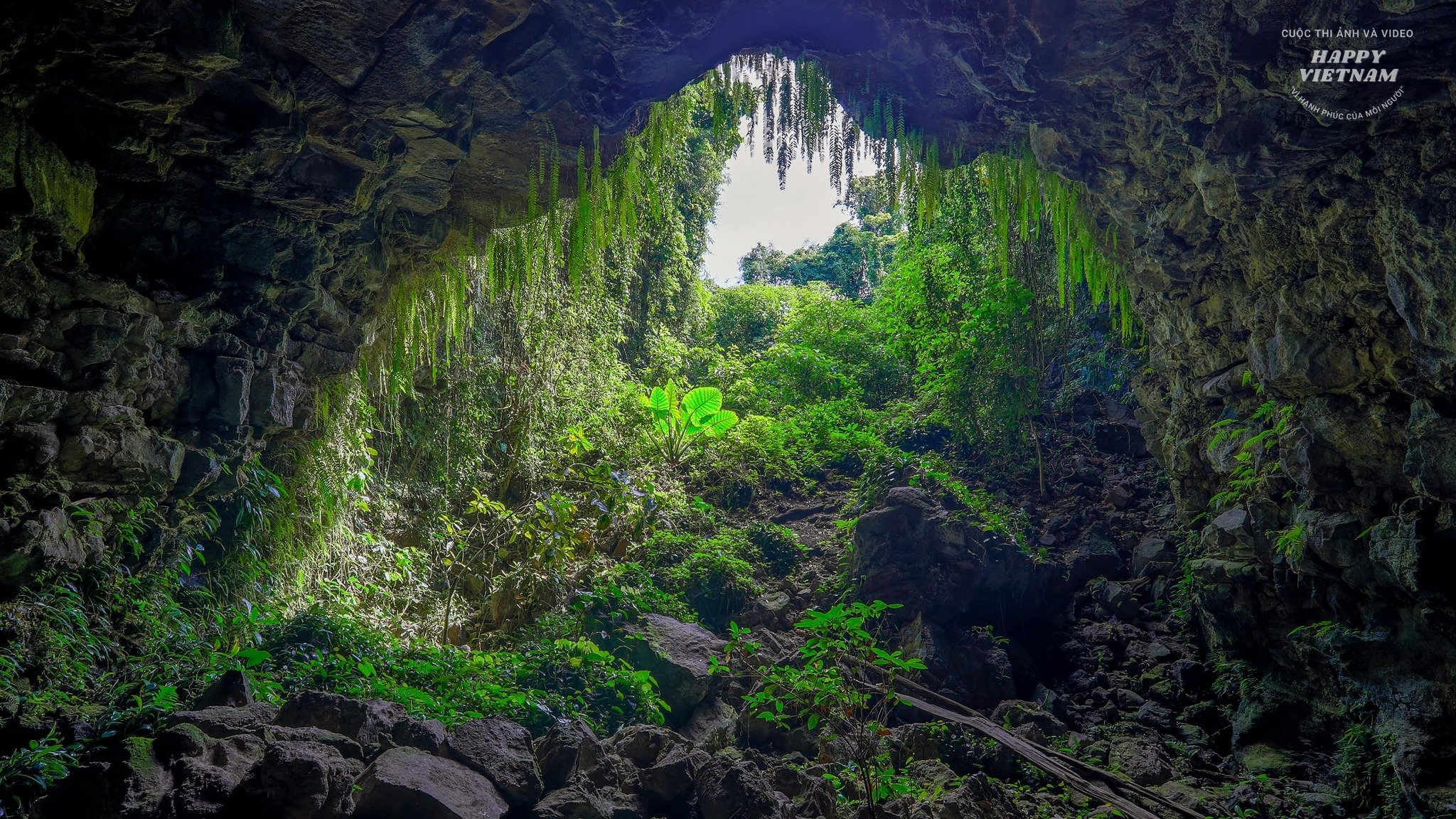
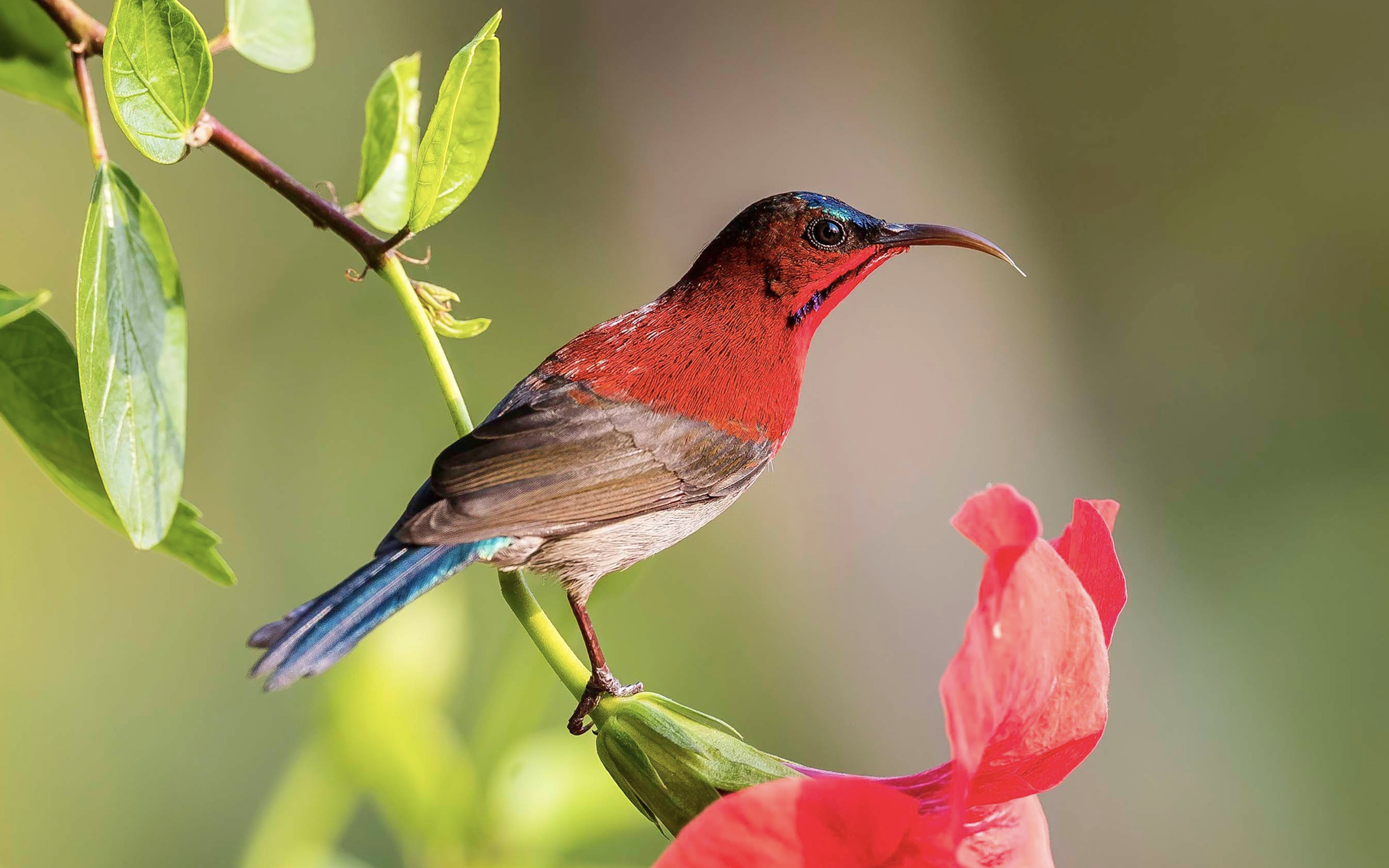
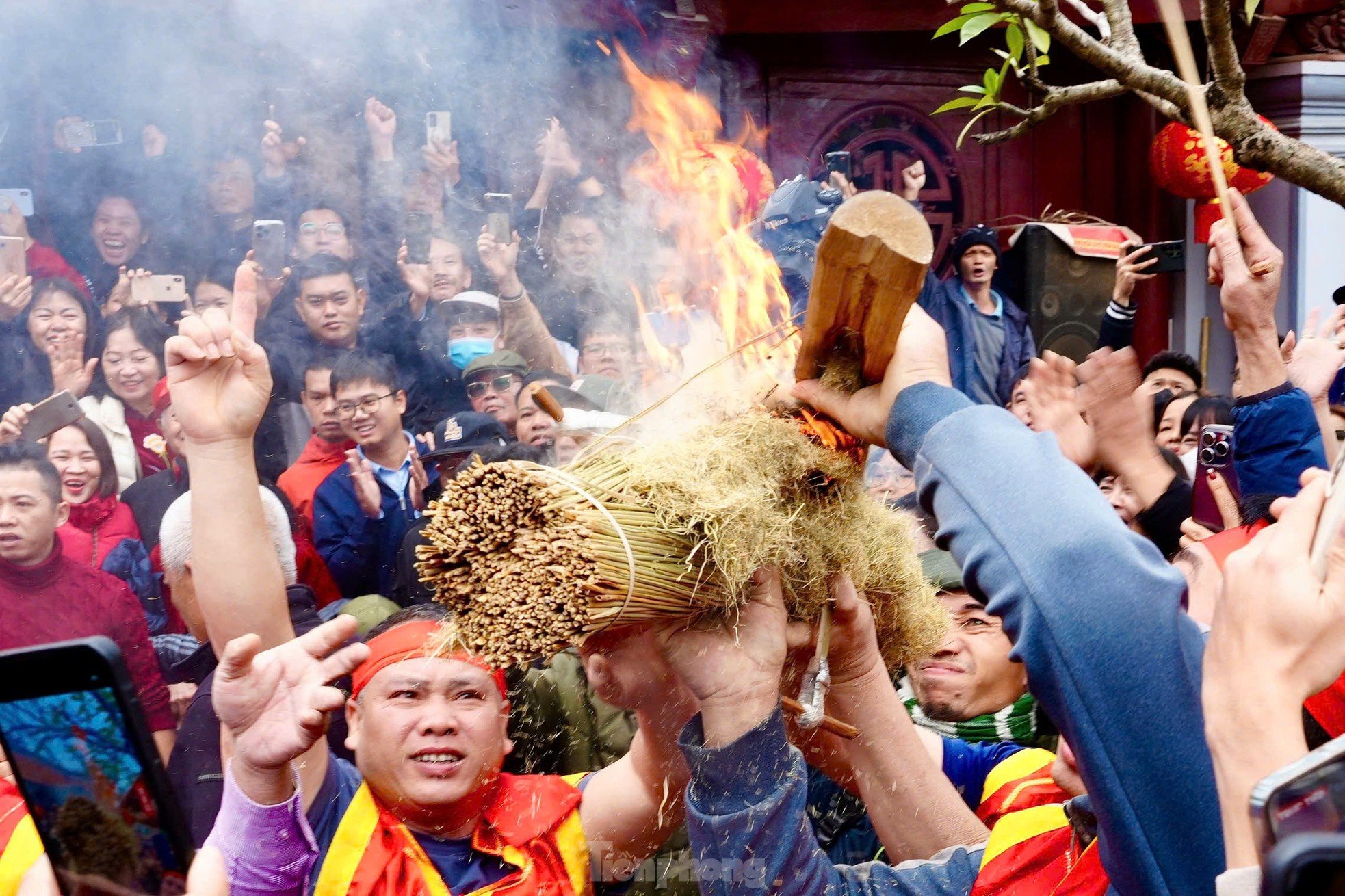
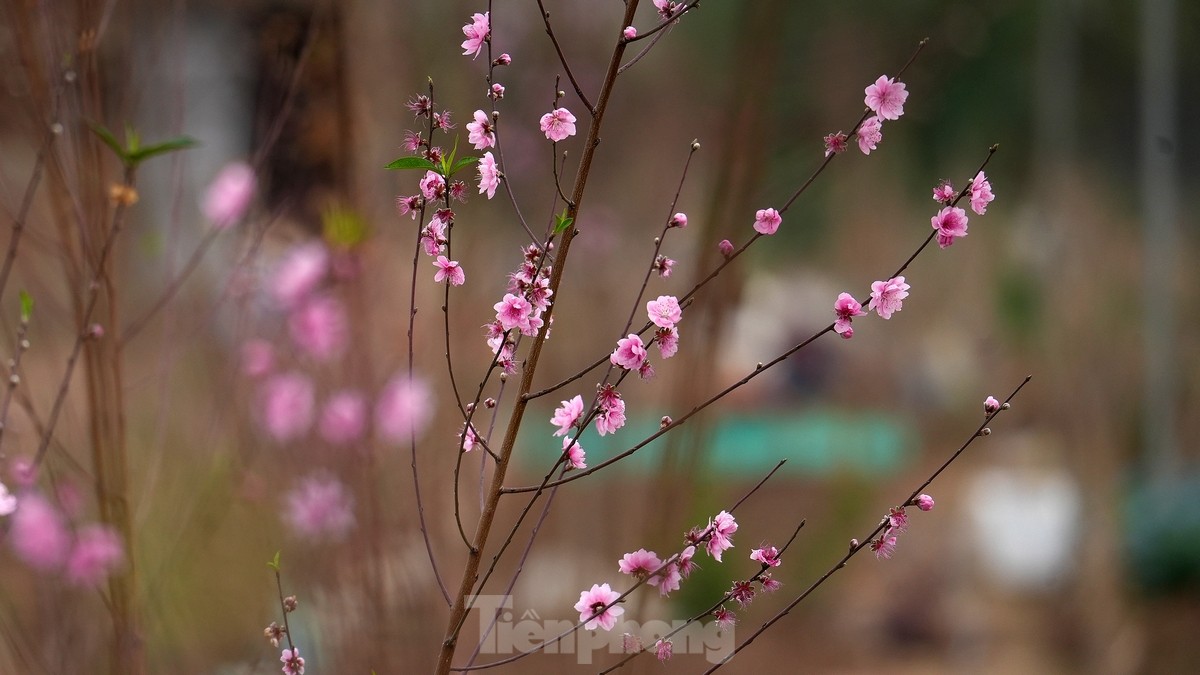
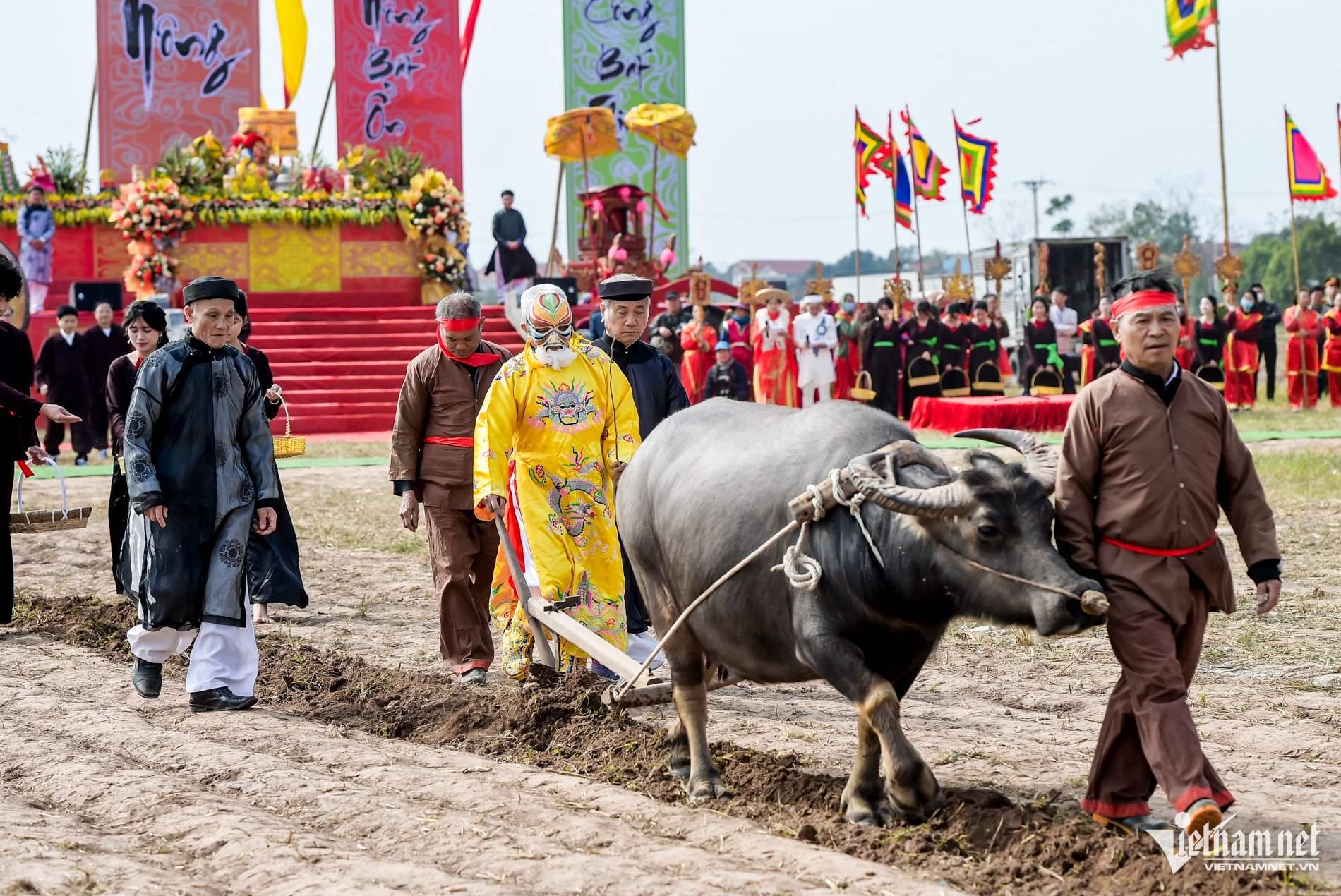
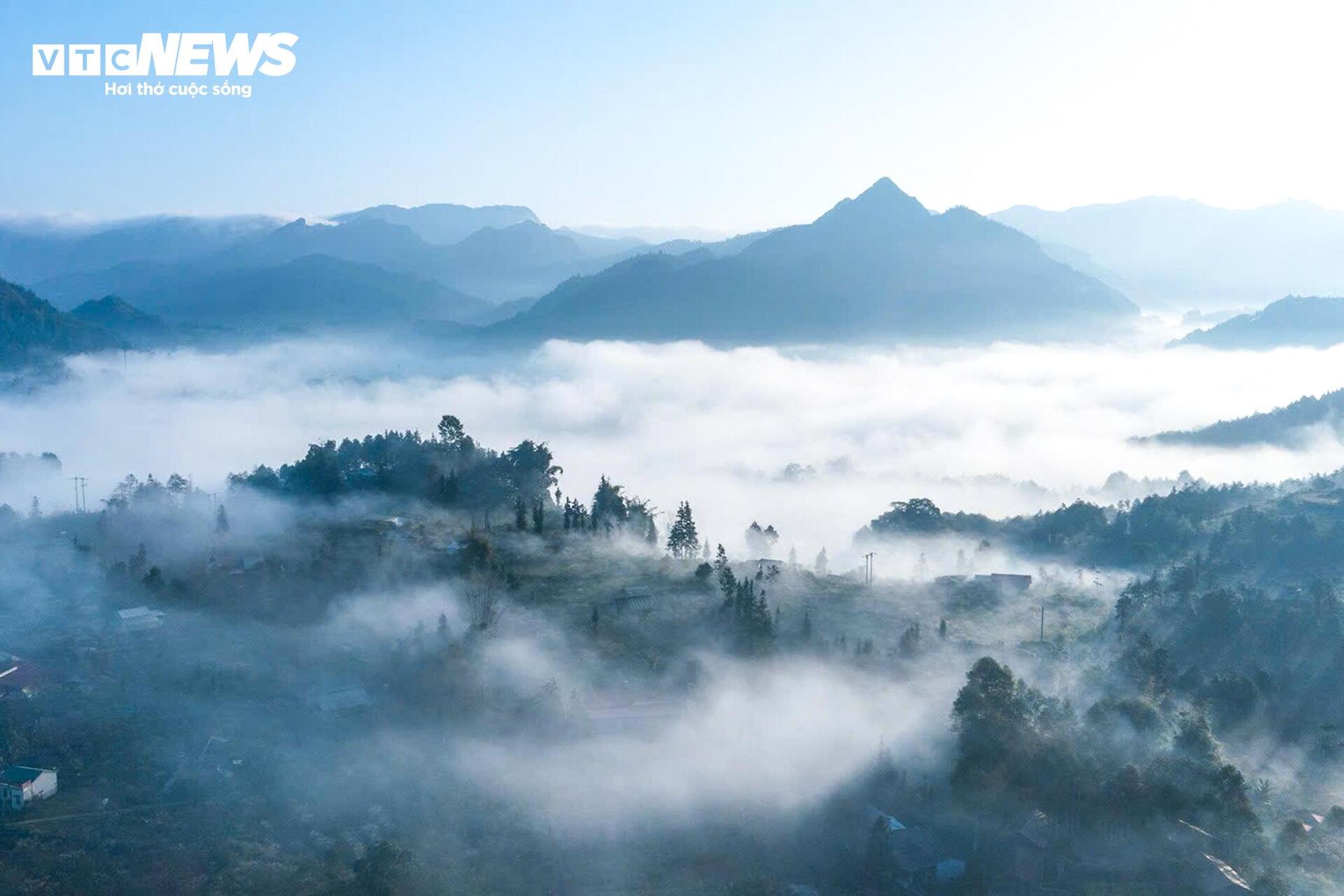
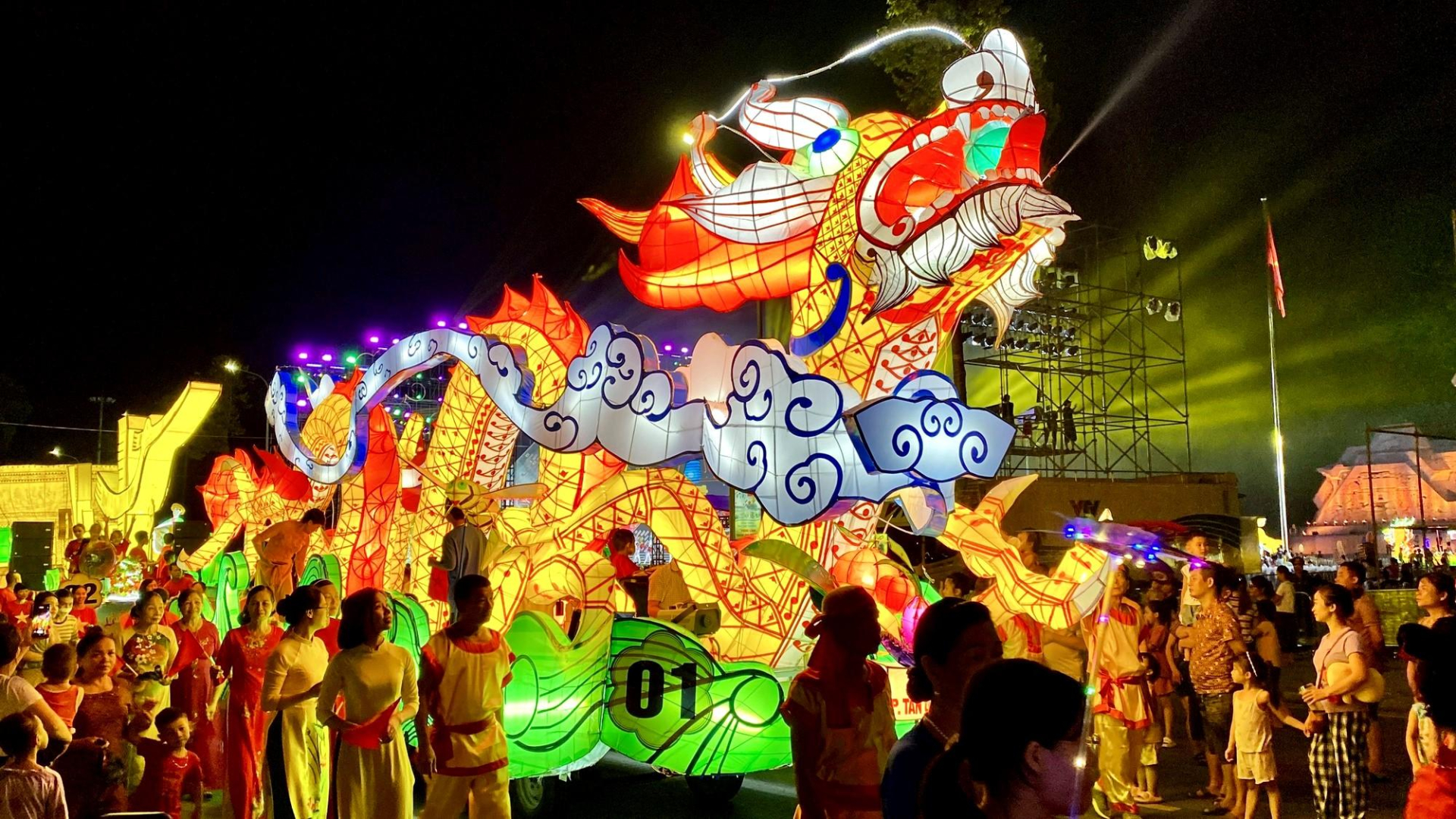

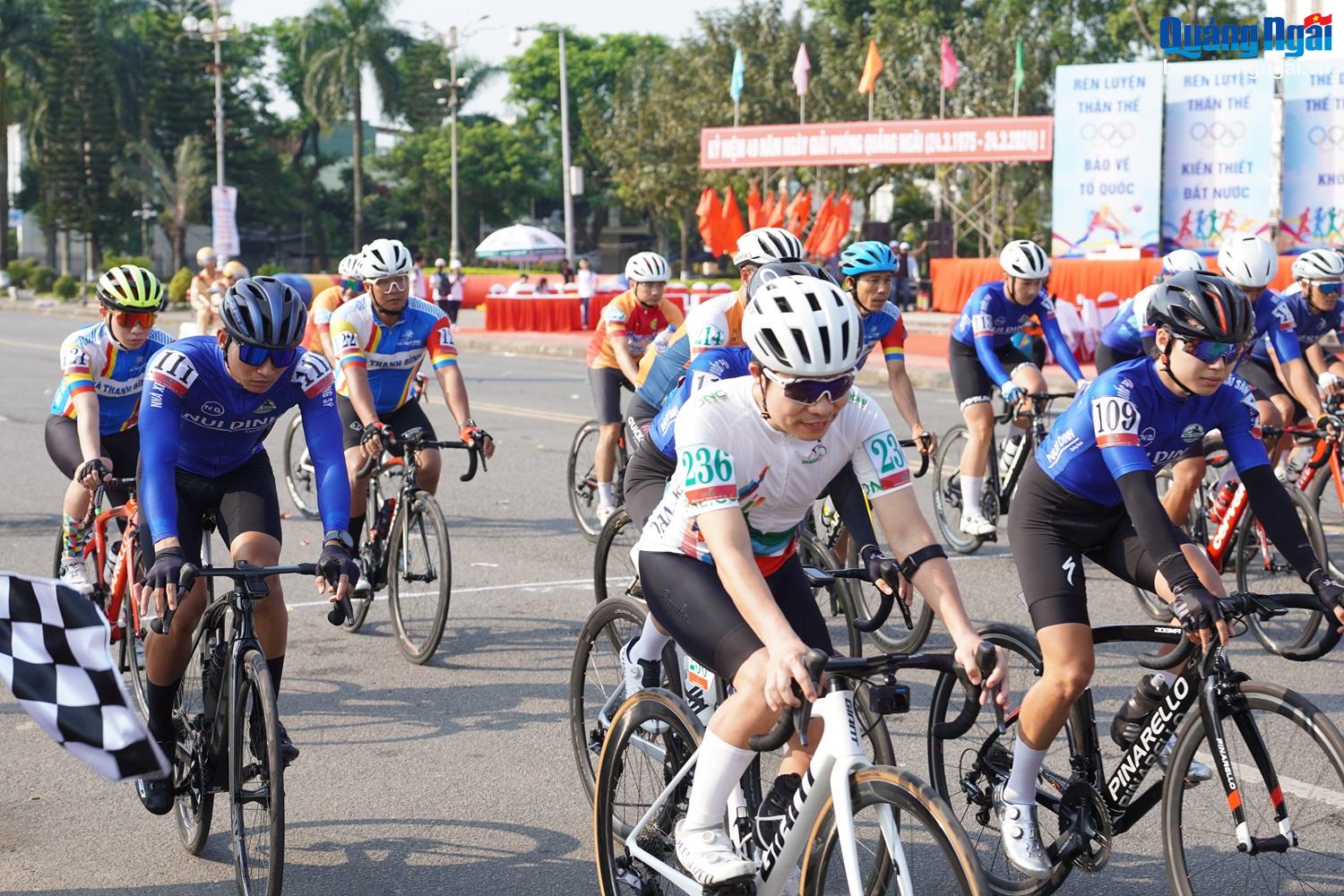
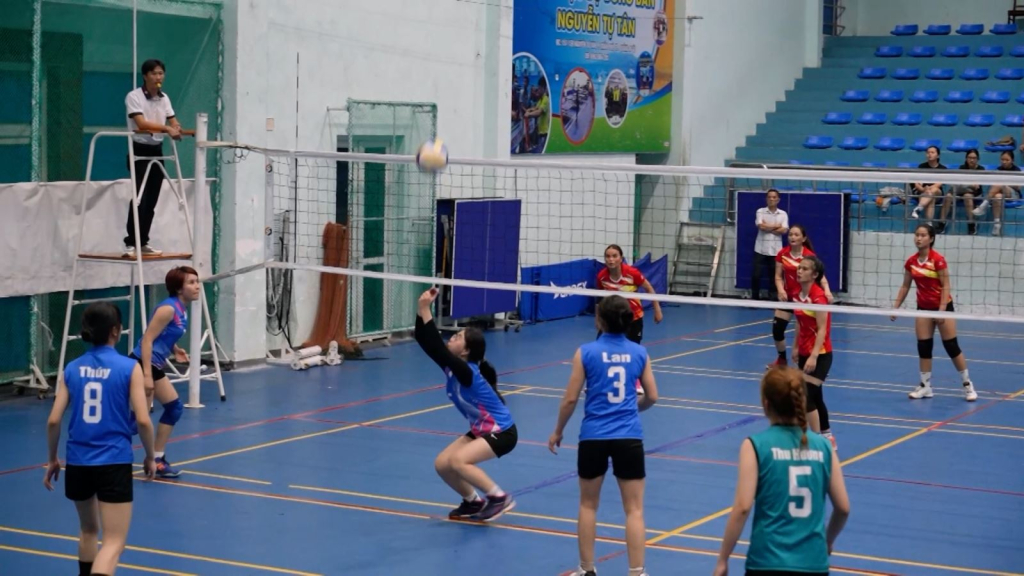
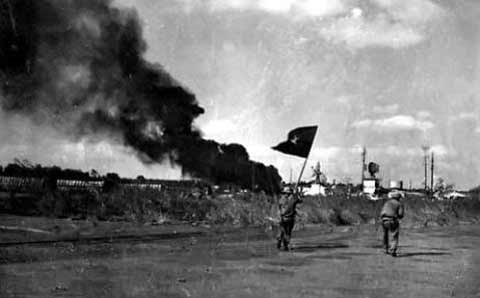


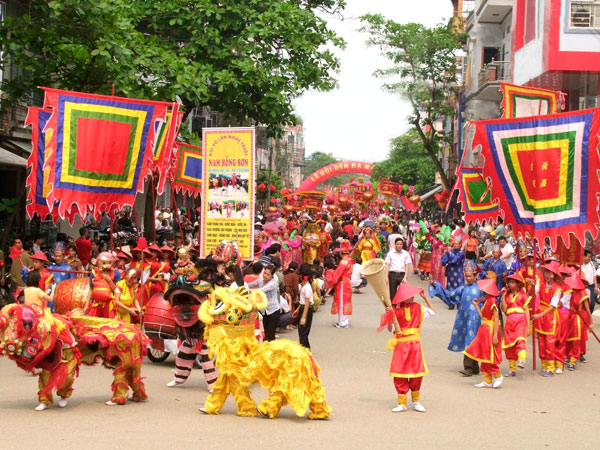
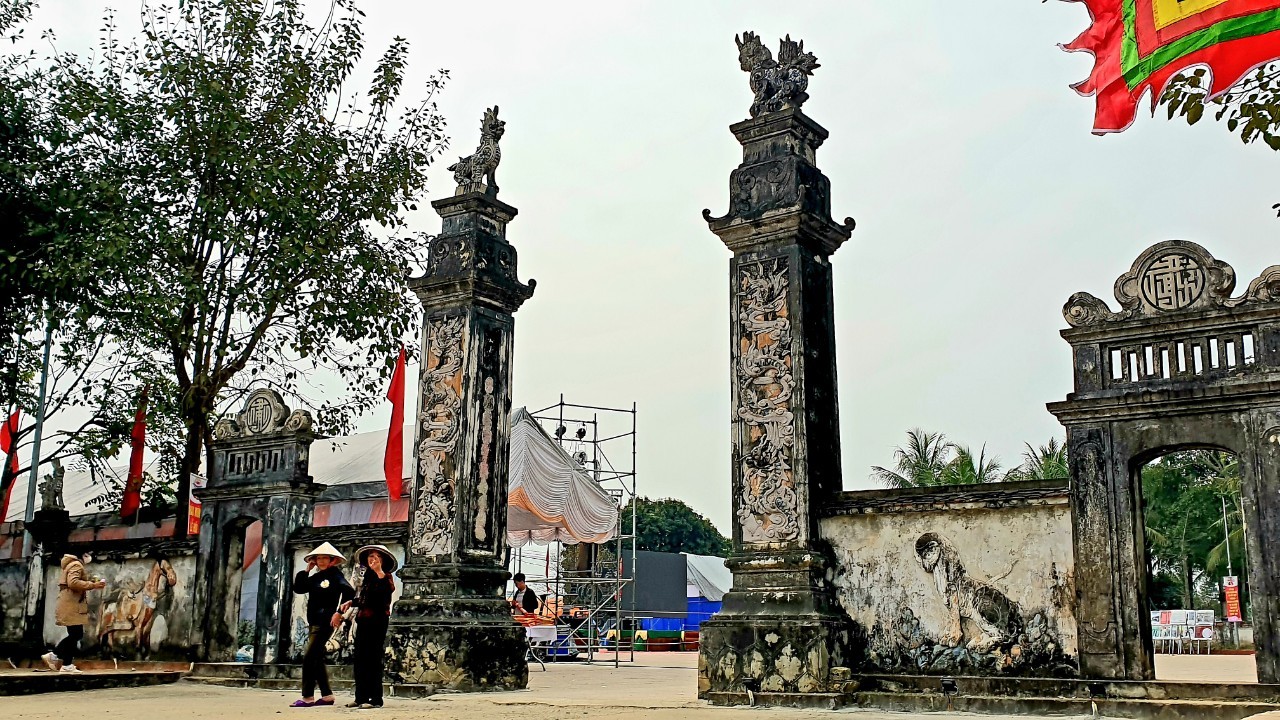

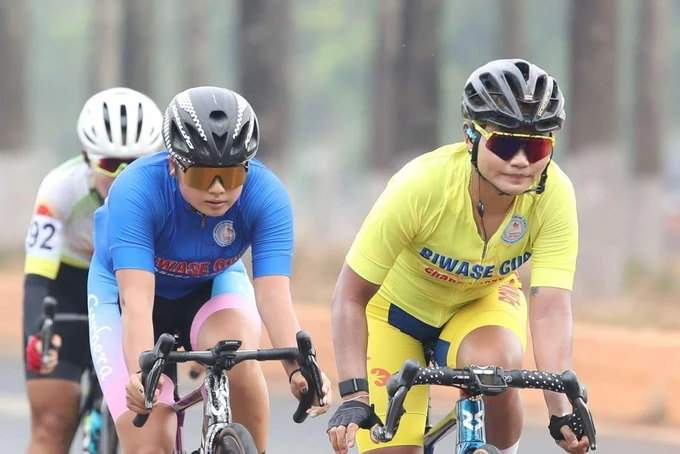
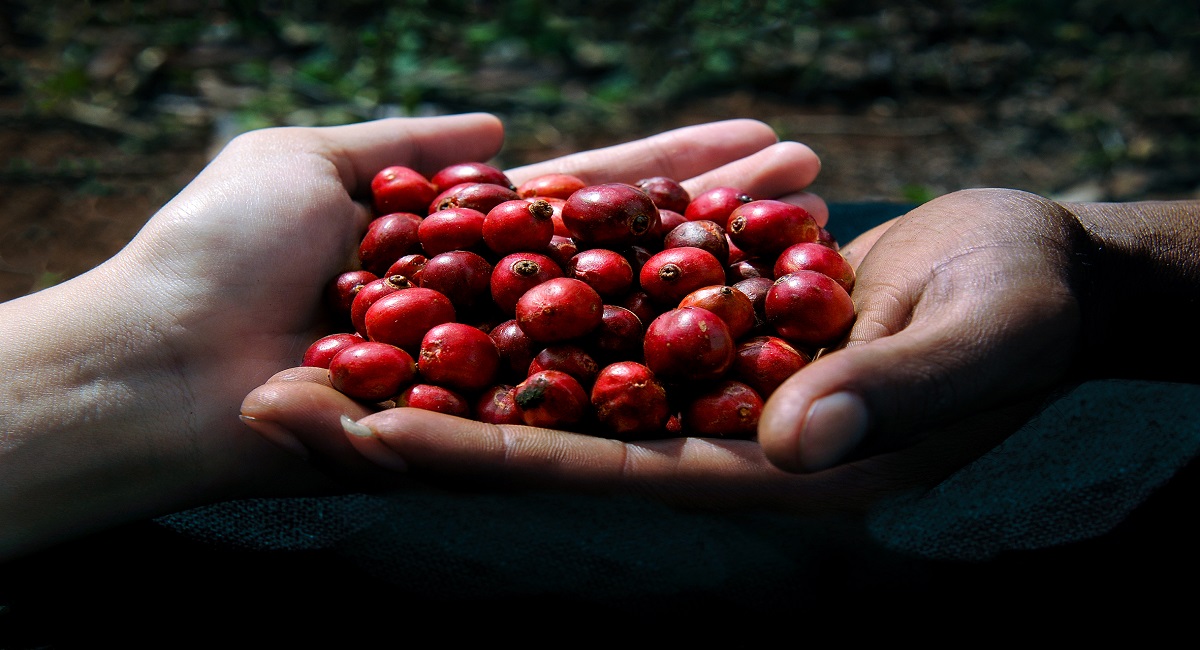




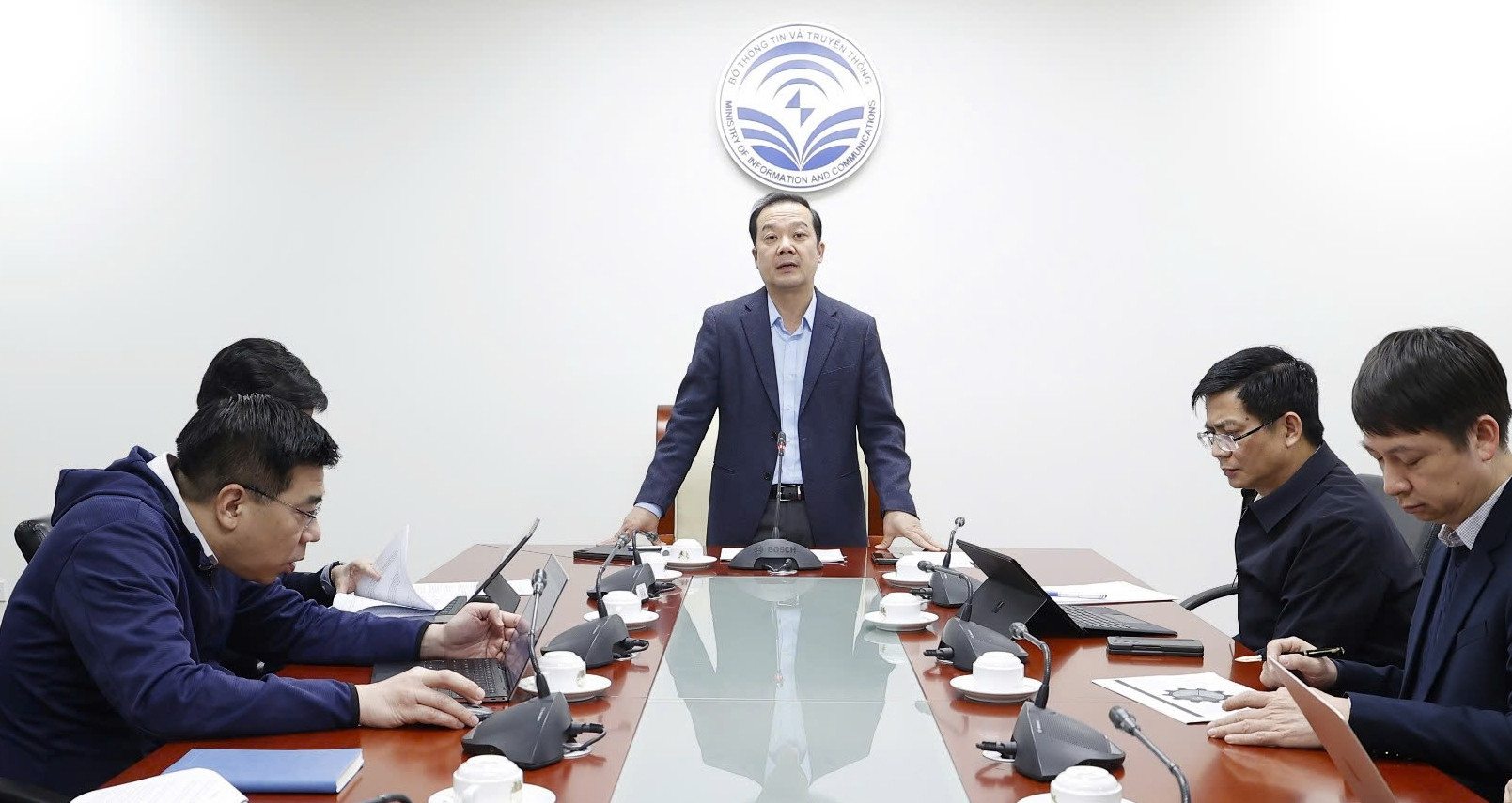

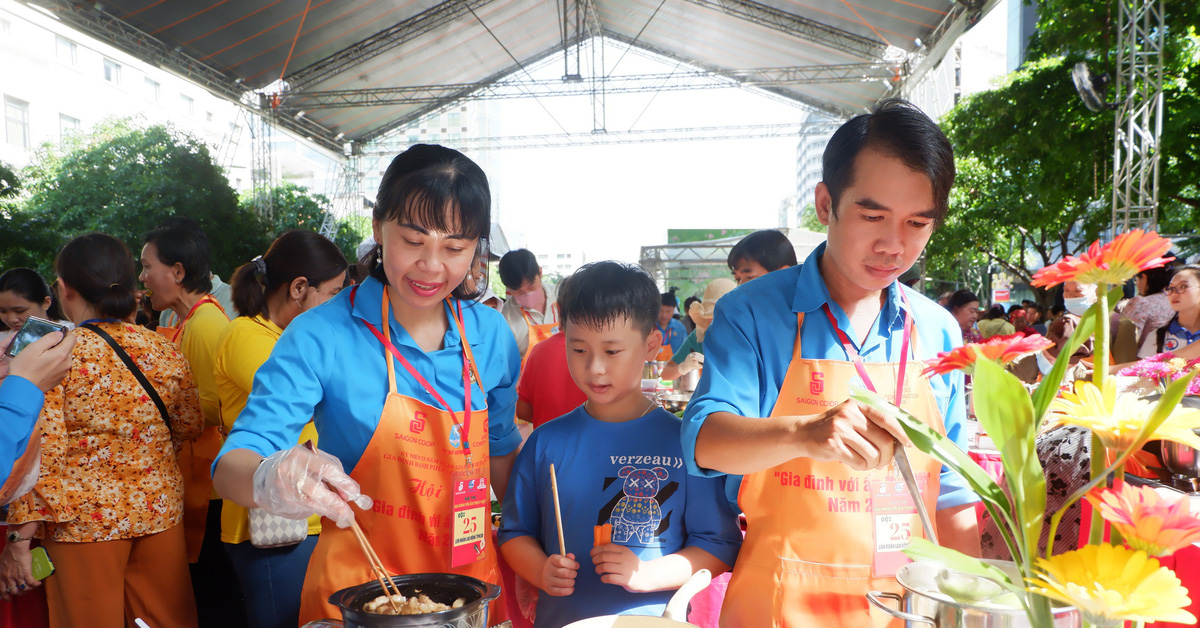
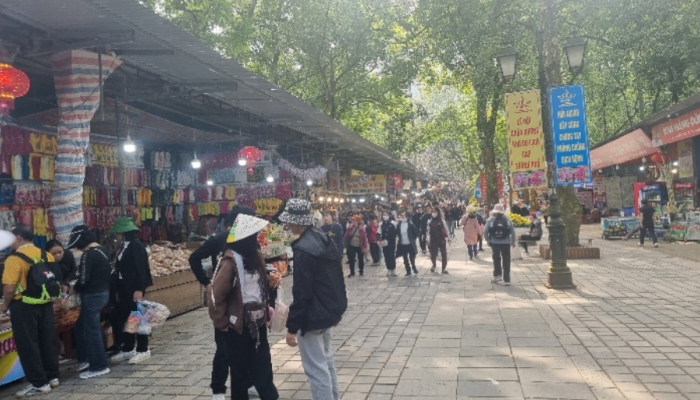

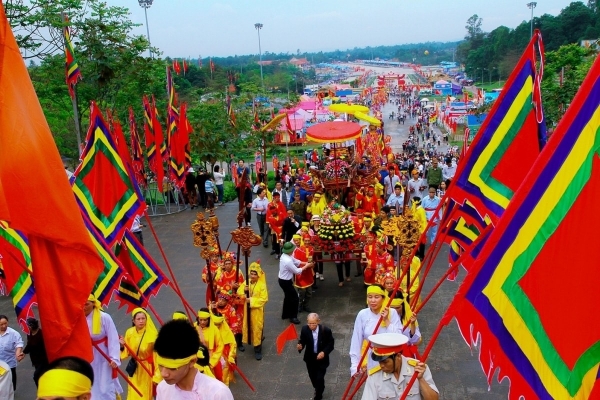



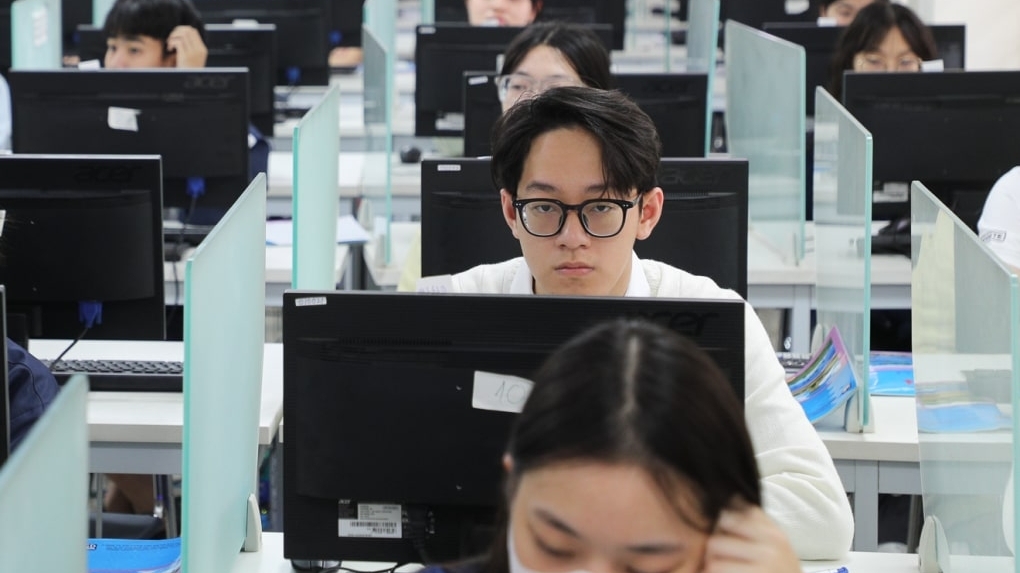

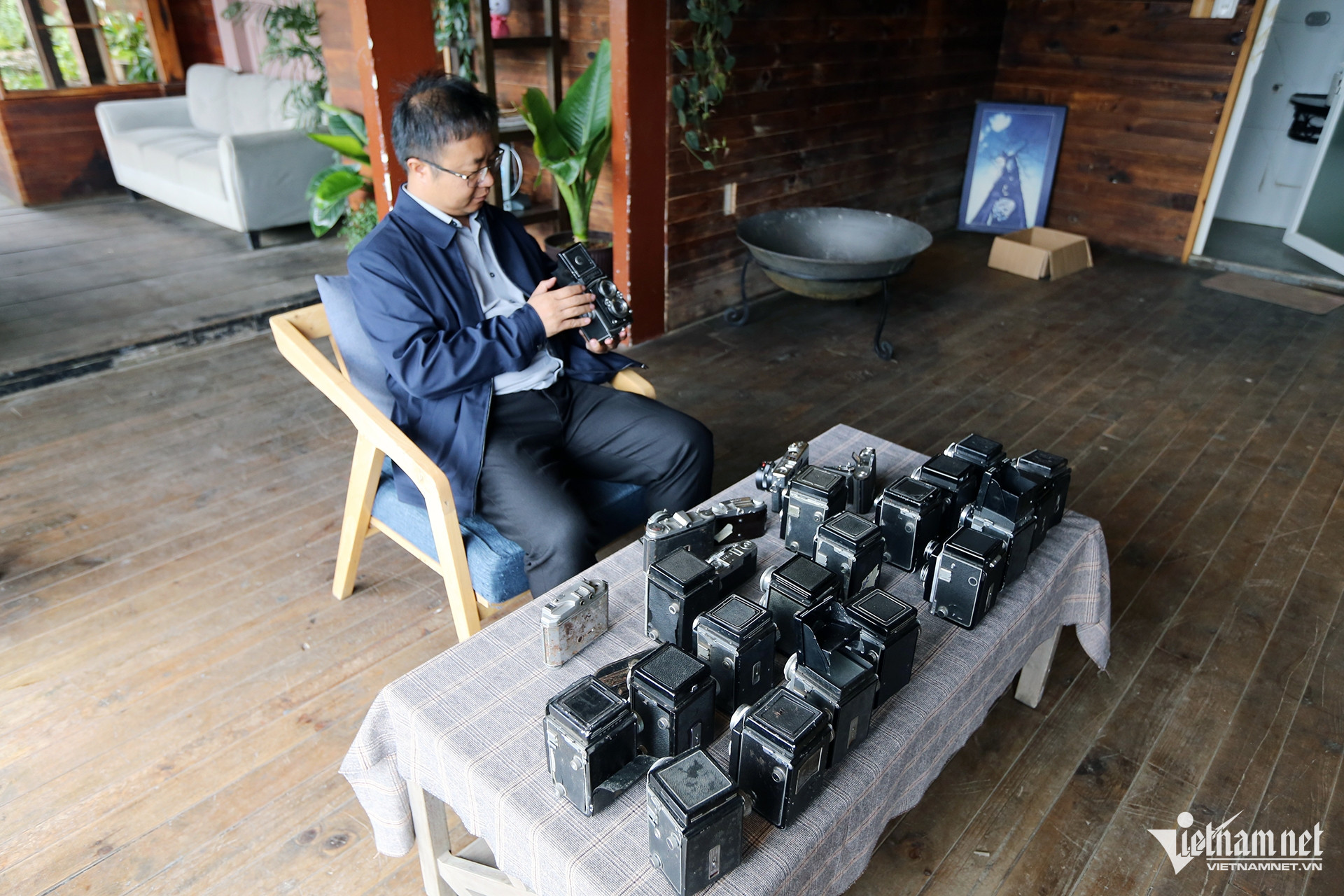
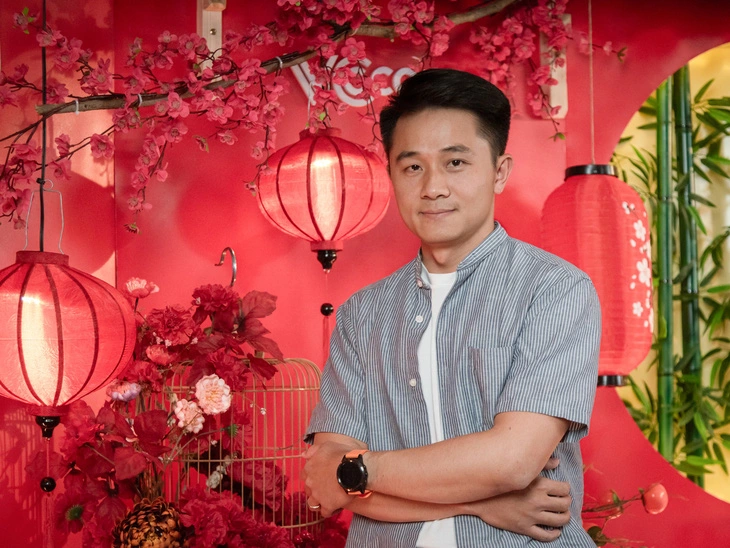
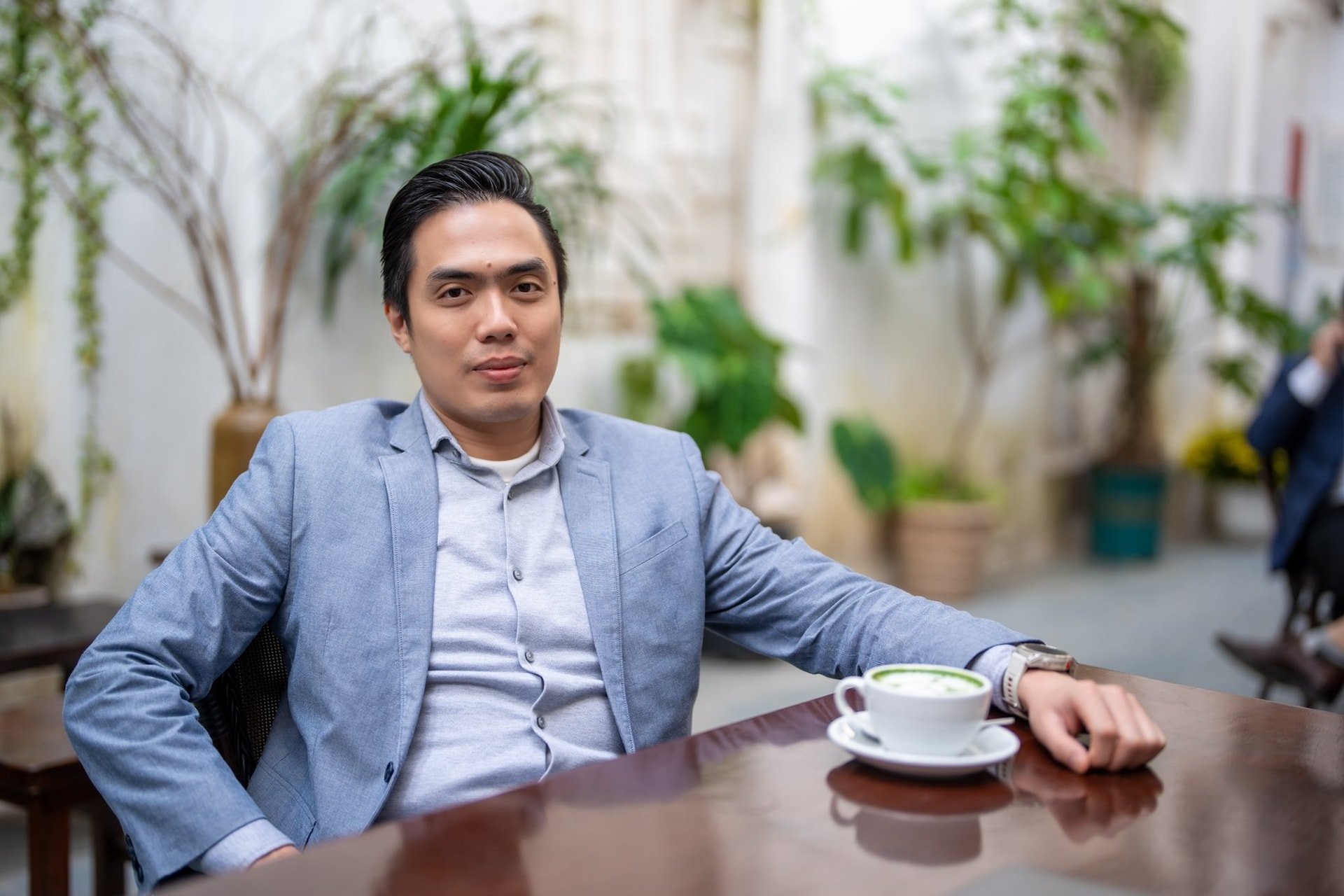

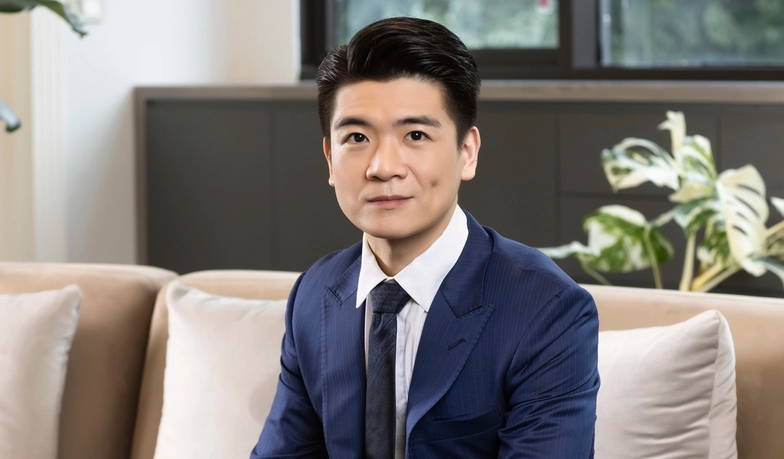

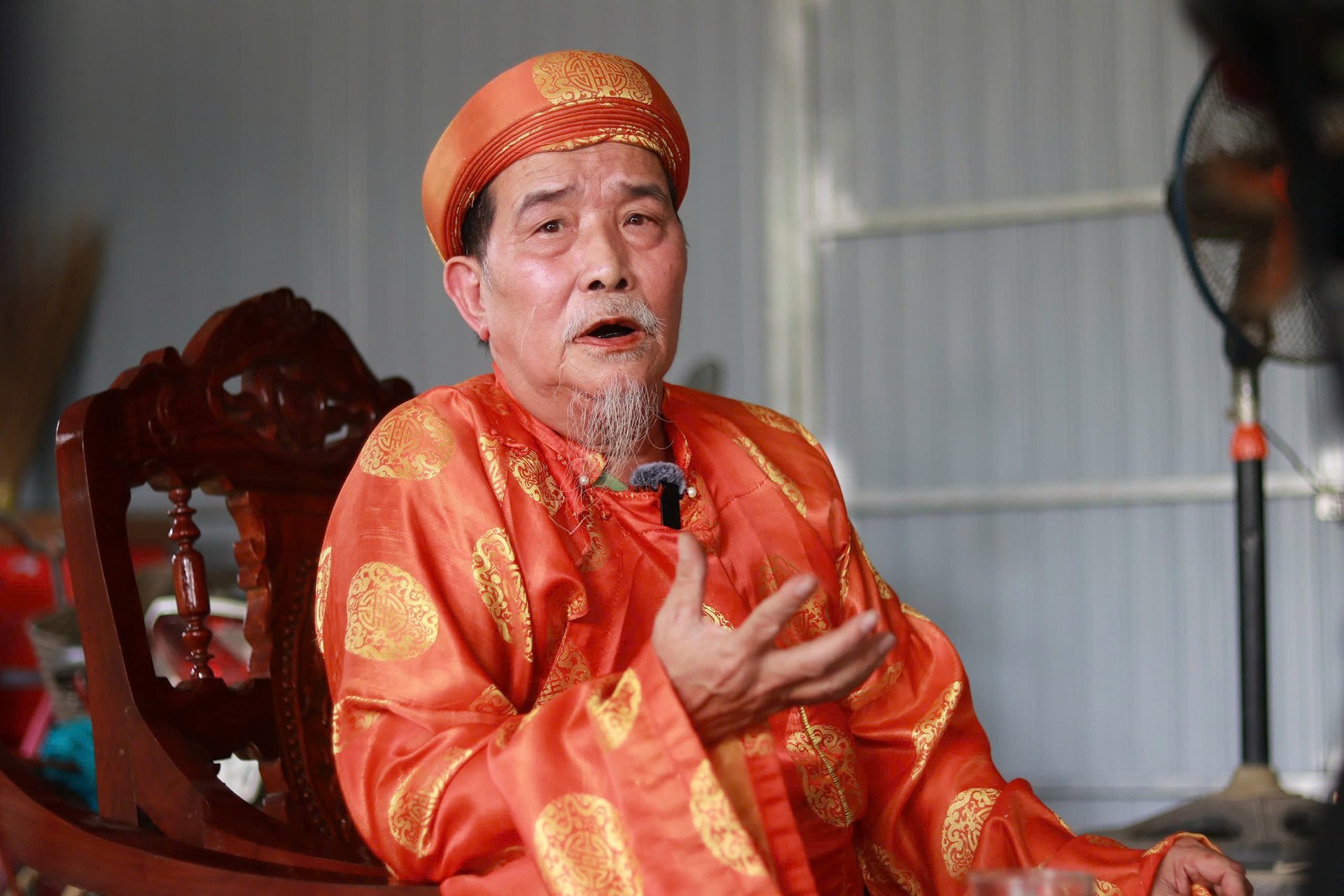
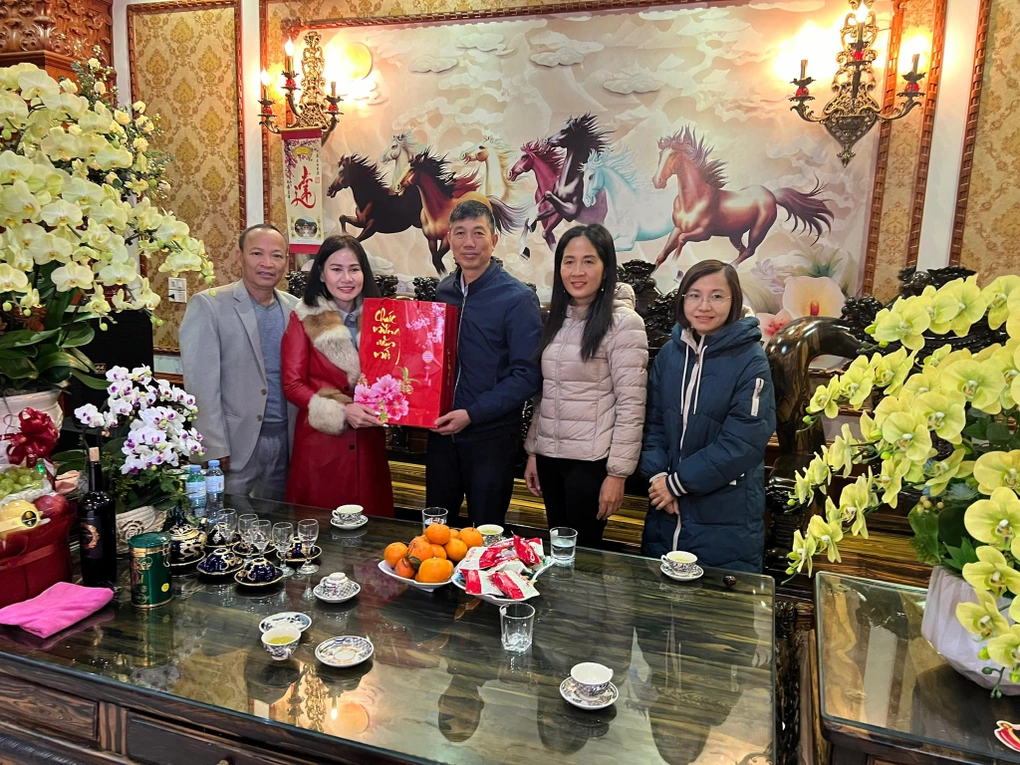





Comment (0)